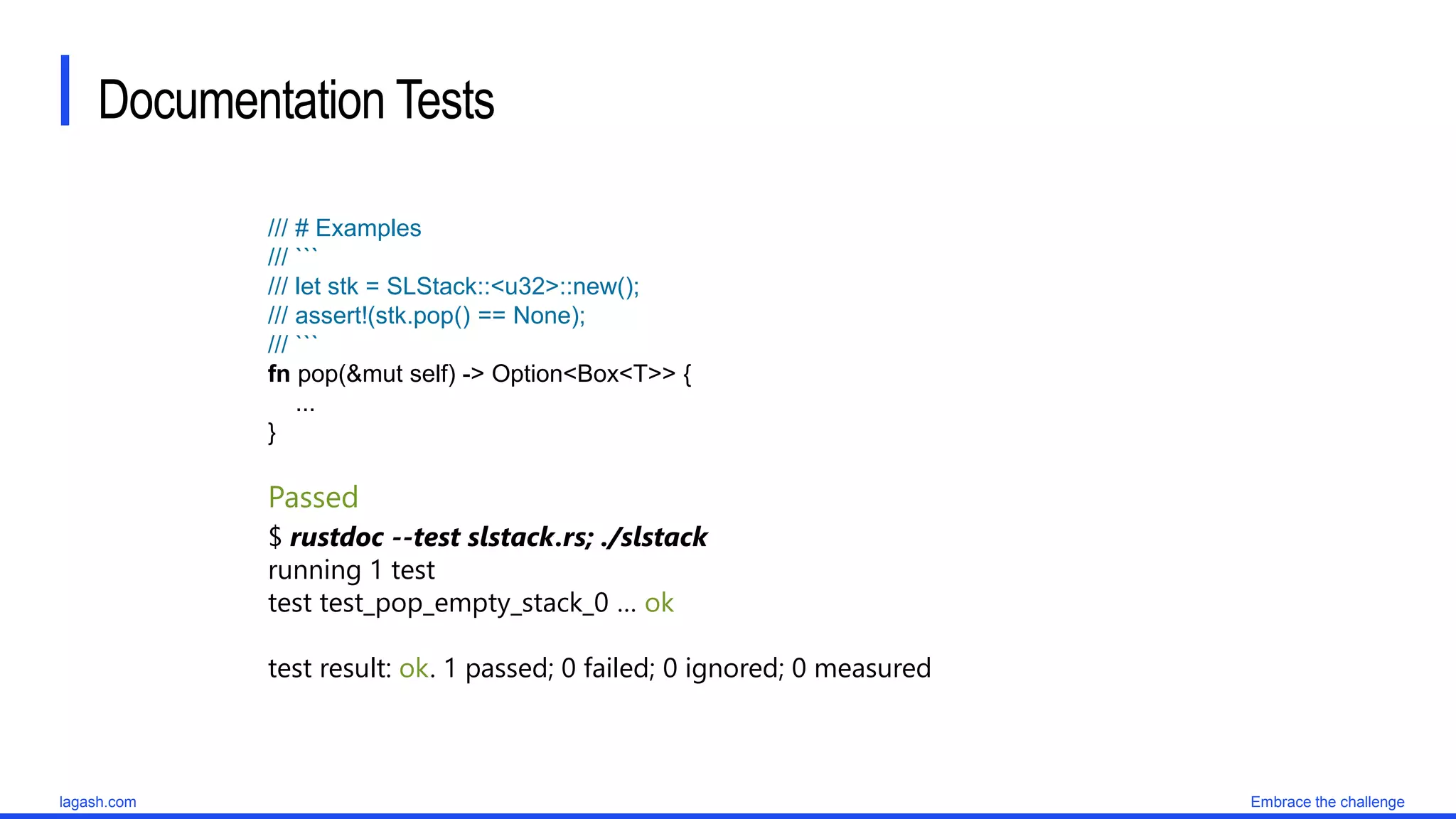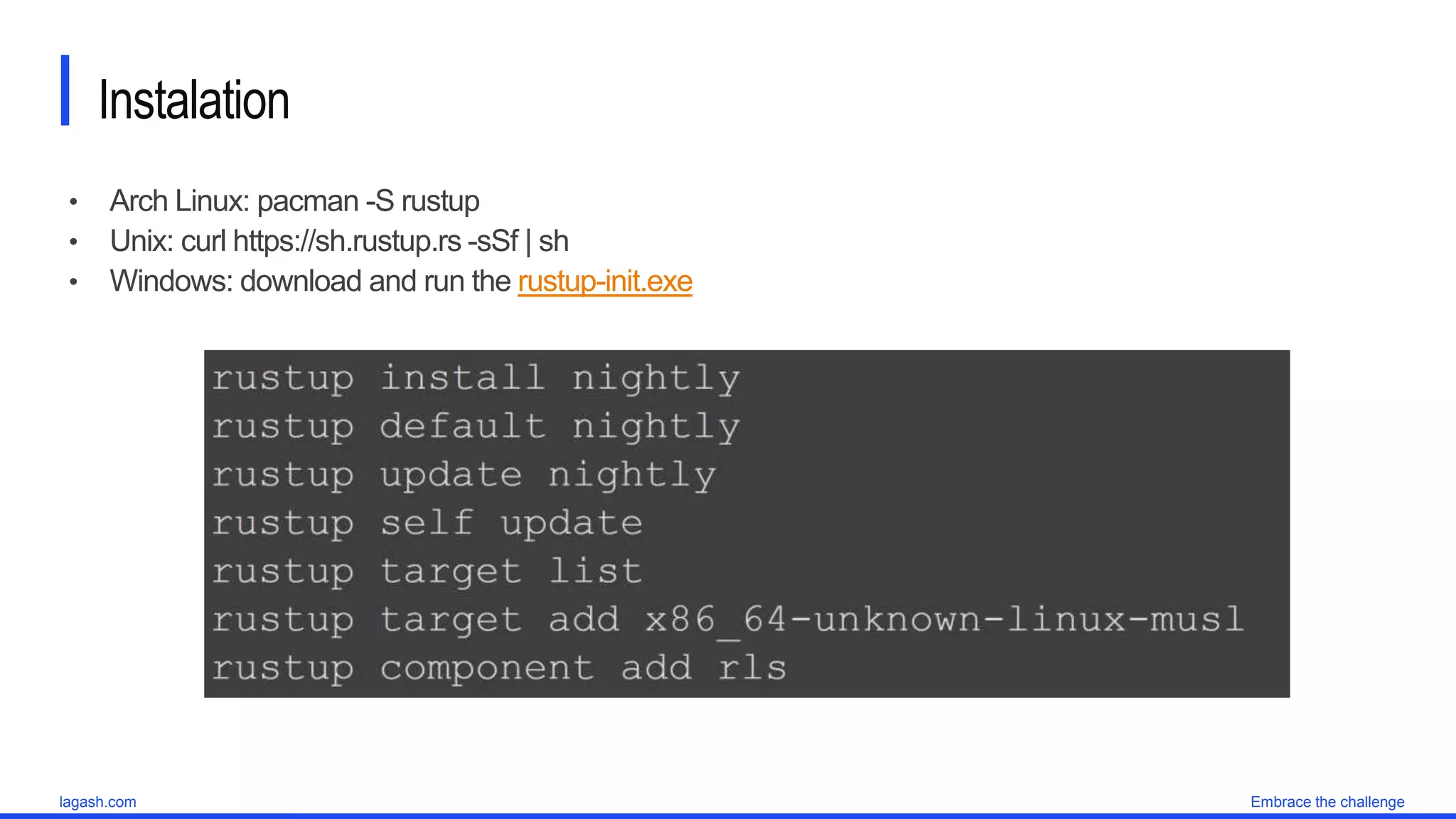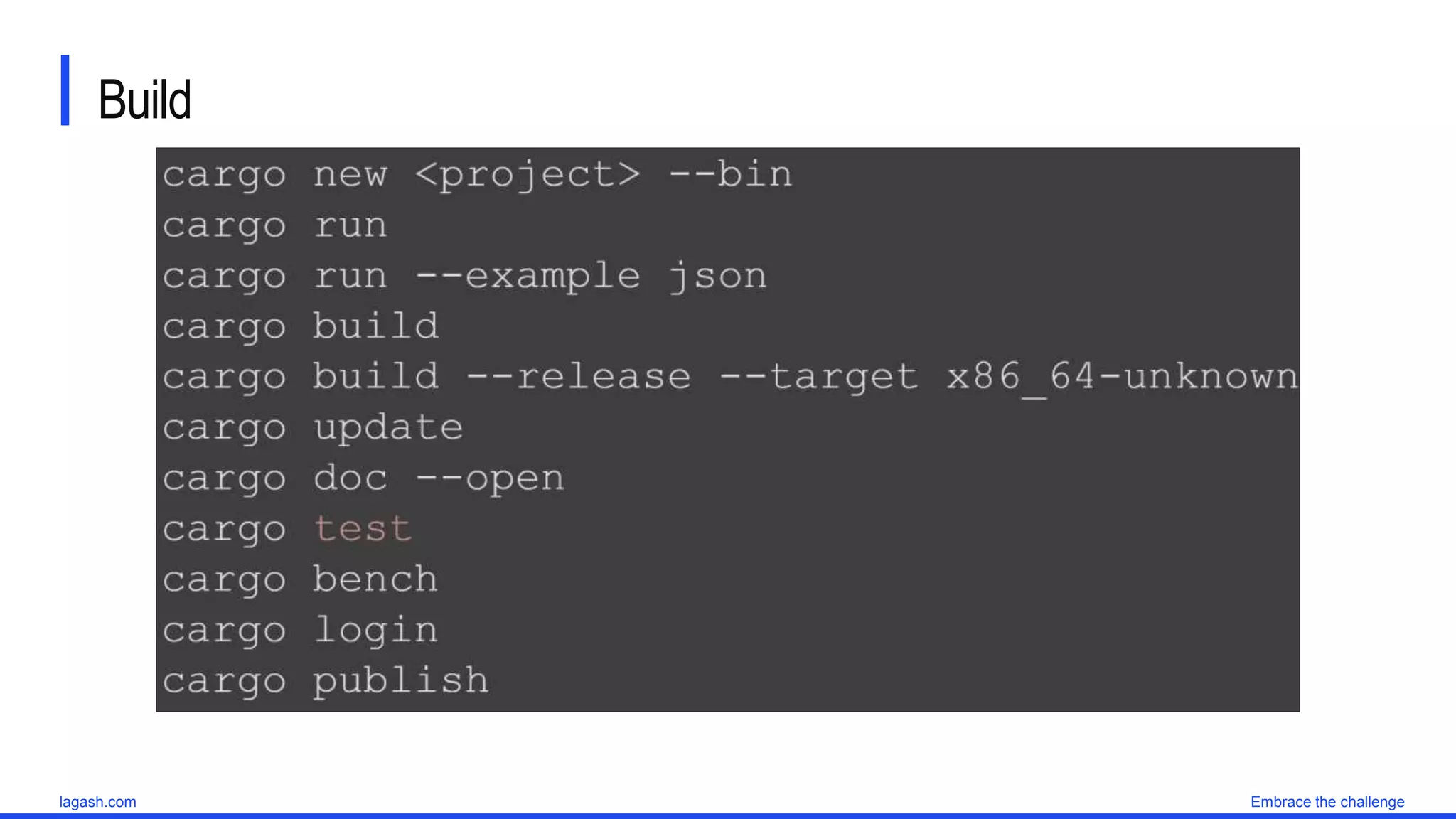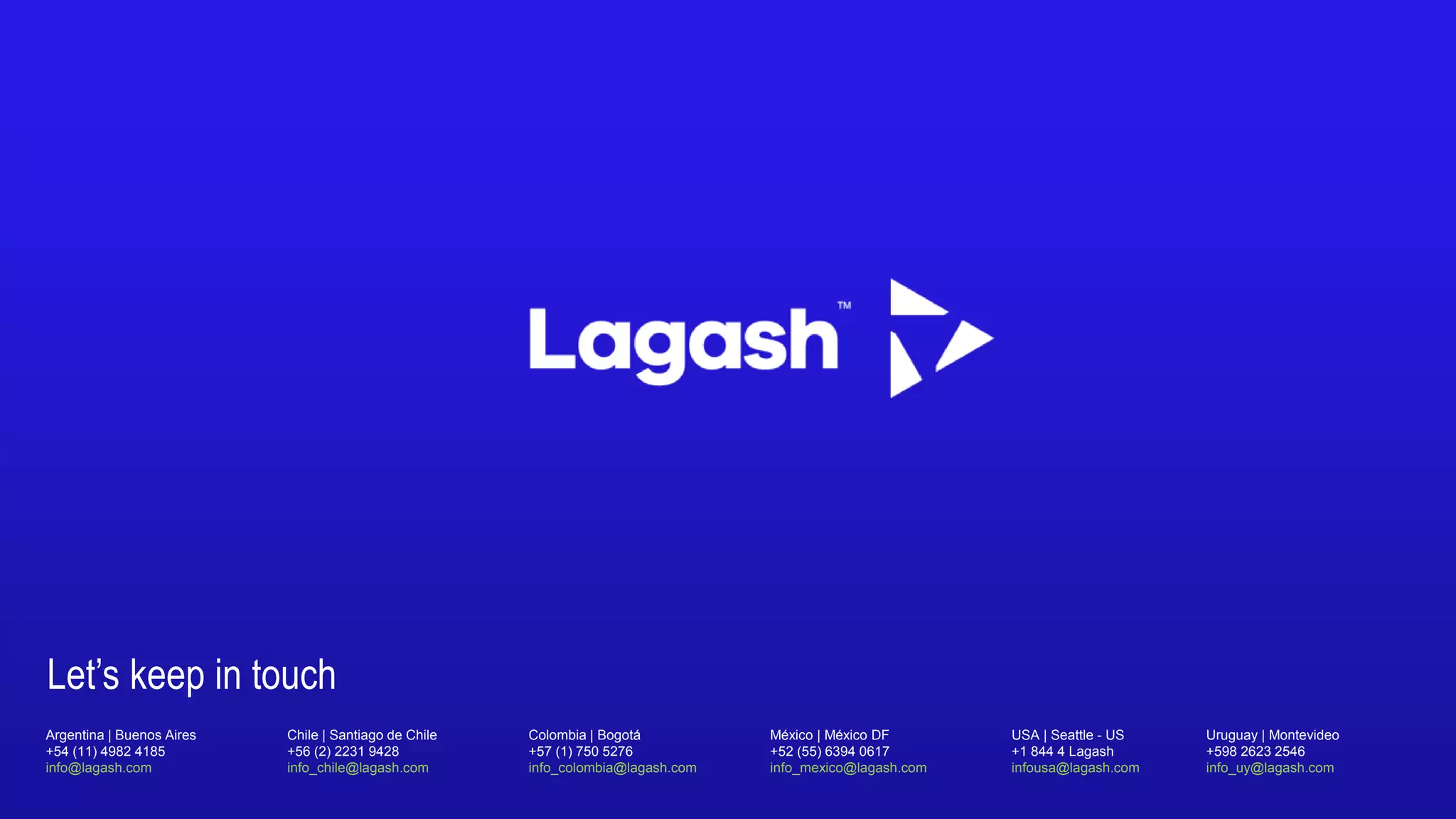Rust is a systems programming language focused on three goals: safety, speed, and concurrency. It is open source and provides top-tier performance like C/C++ while ensuring memory safety and preventing issues like memory leaks through its ownership and borrowing model that is checked at compile time. Rust also supports features like enums, pattern matching, generics, traits, and has a built-in test system to help ensure correctness.
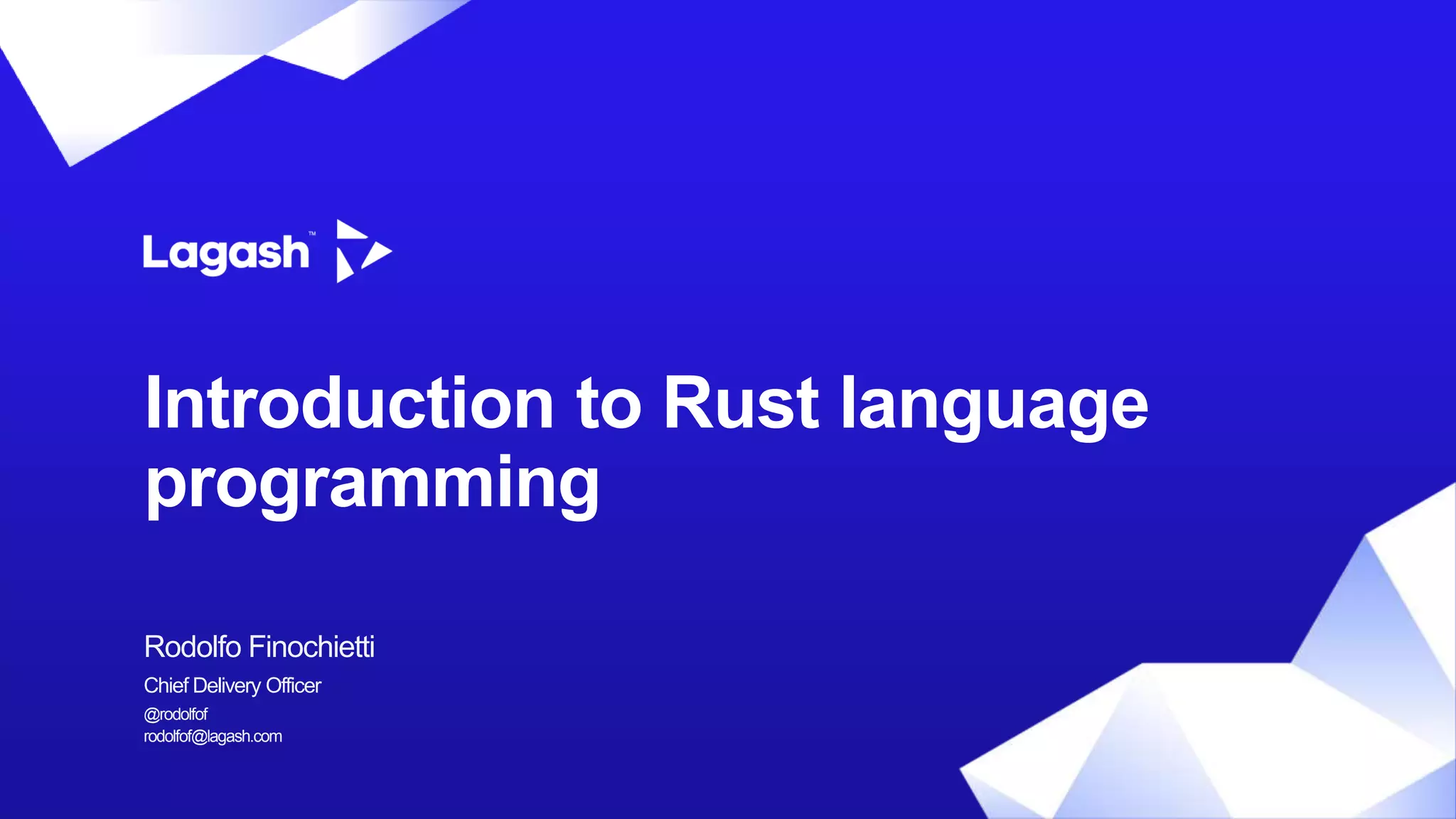
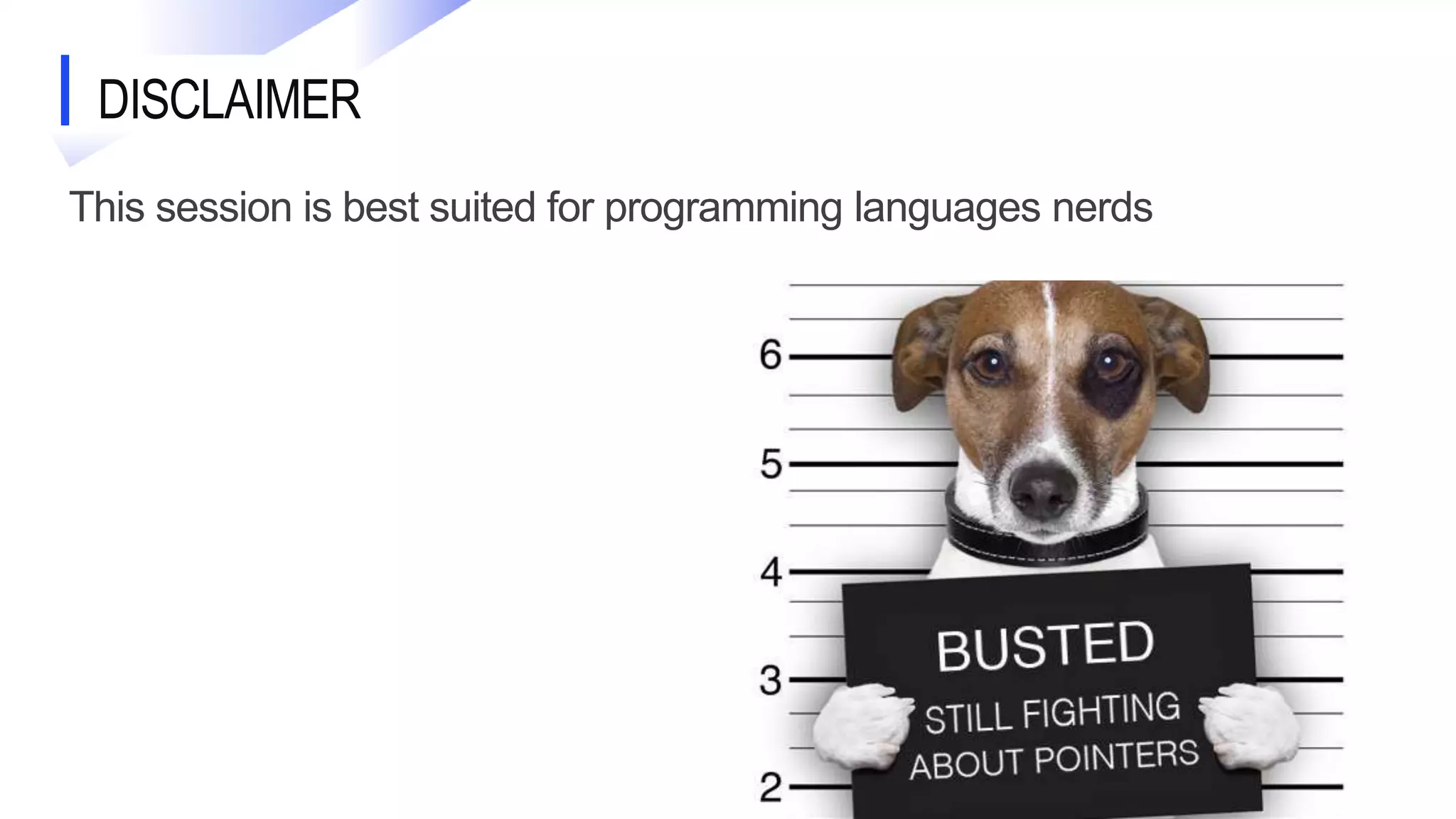

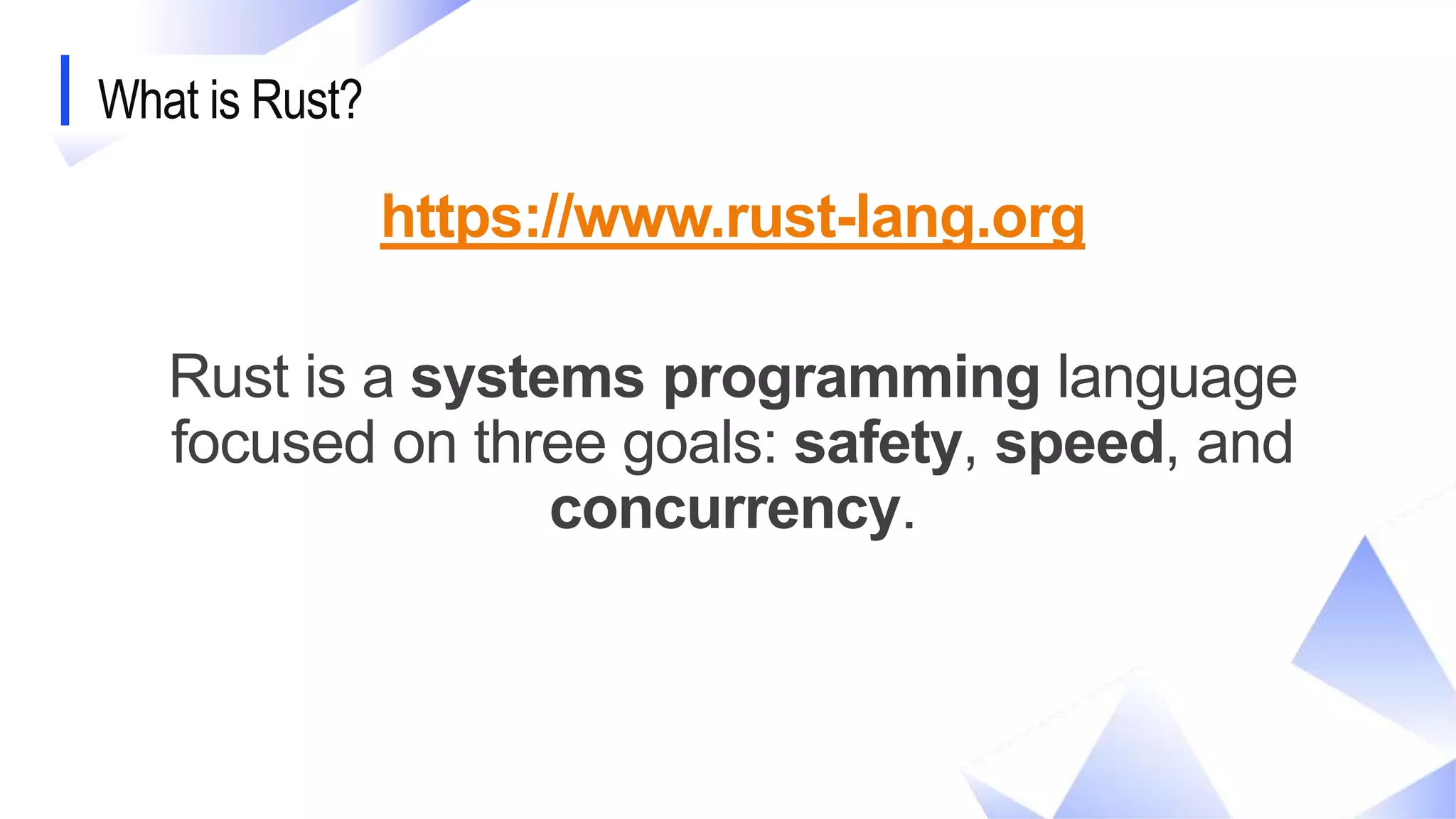
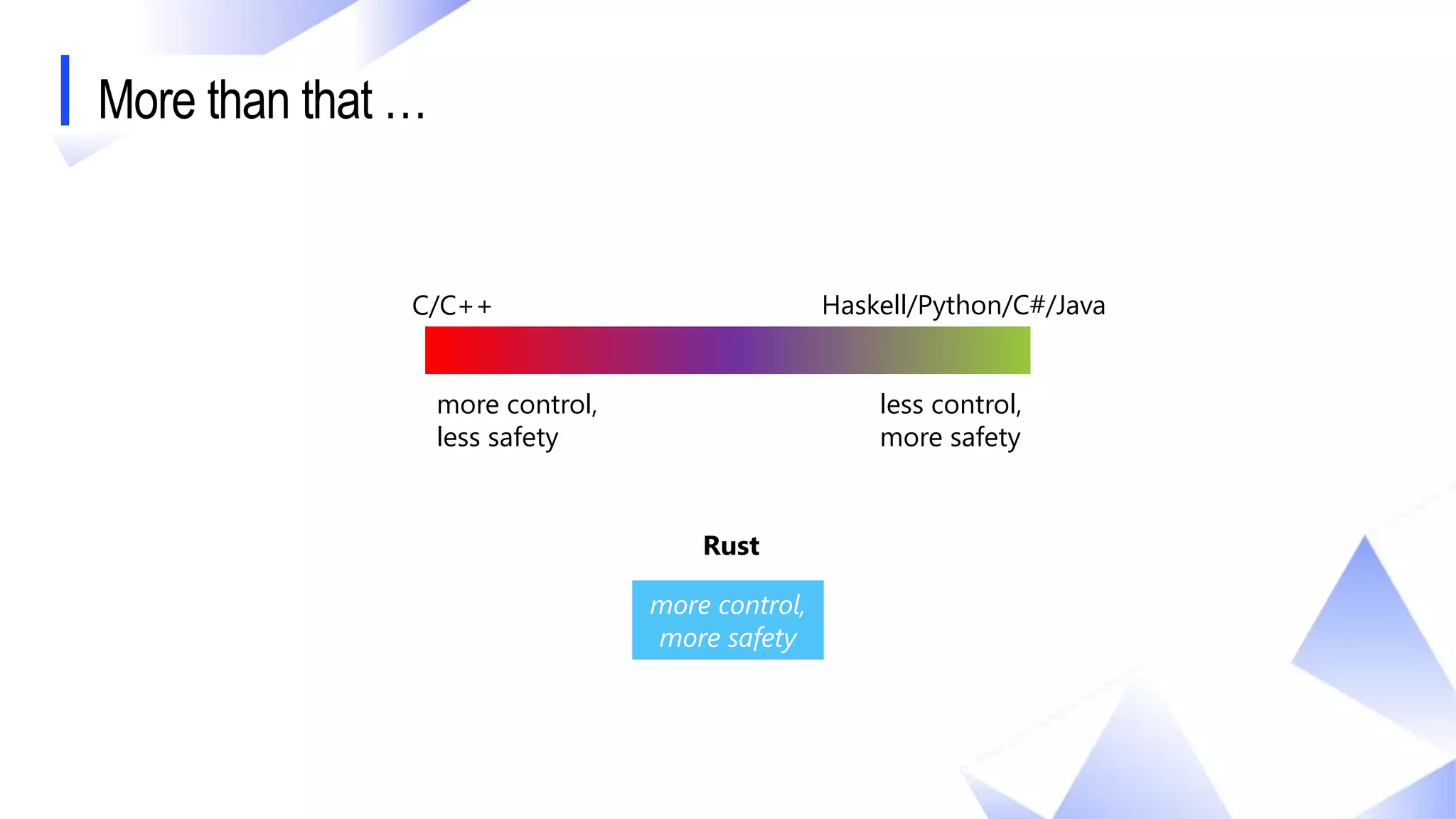
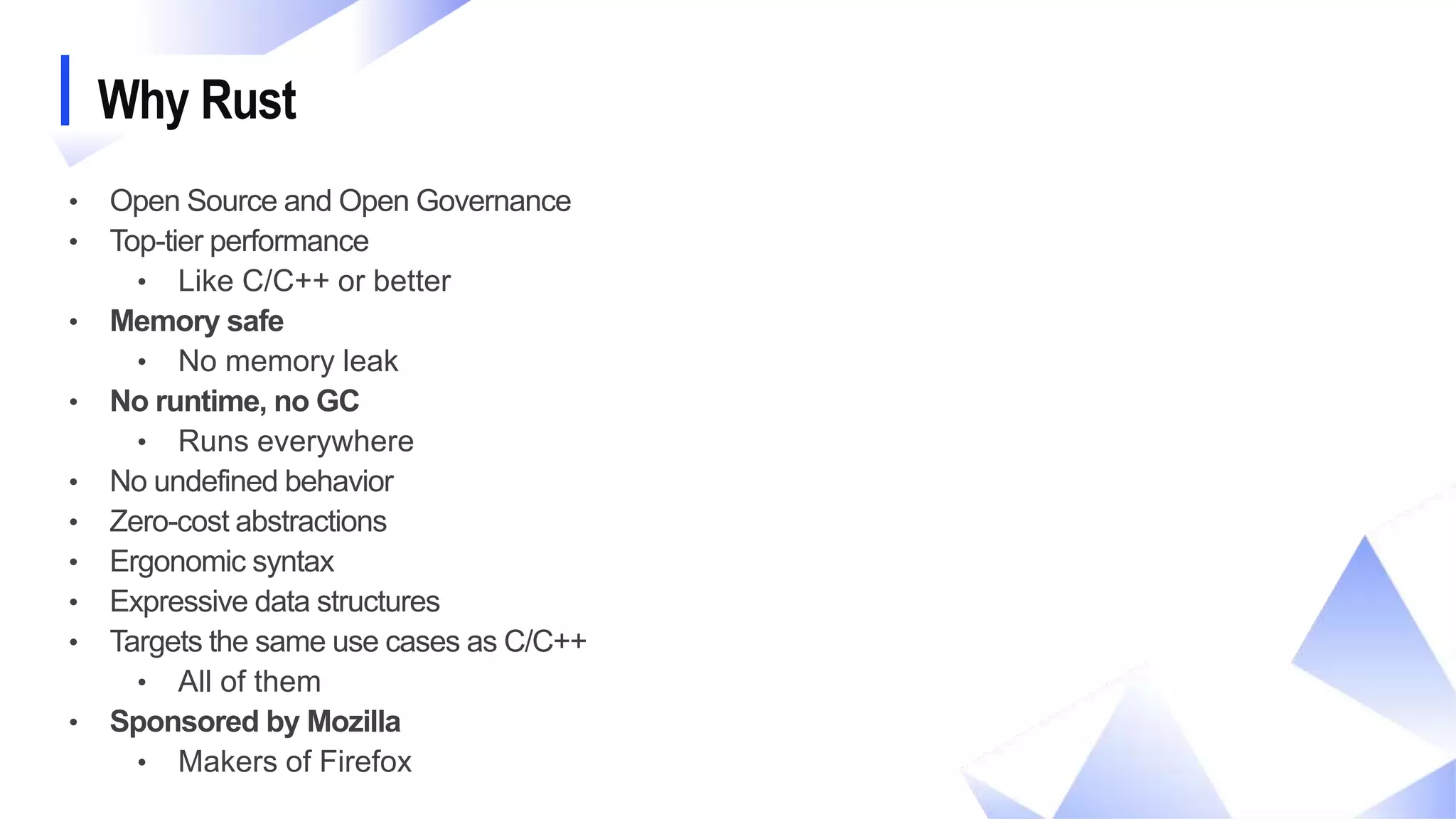
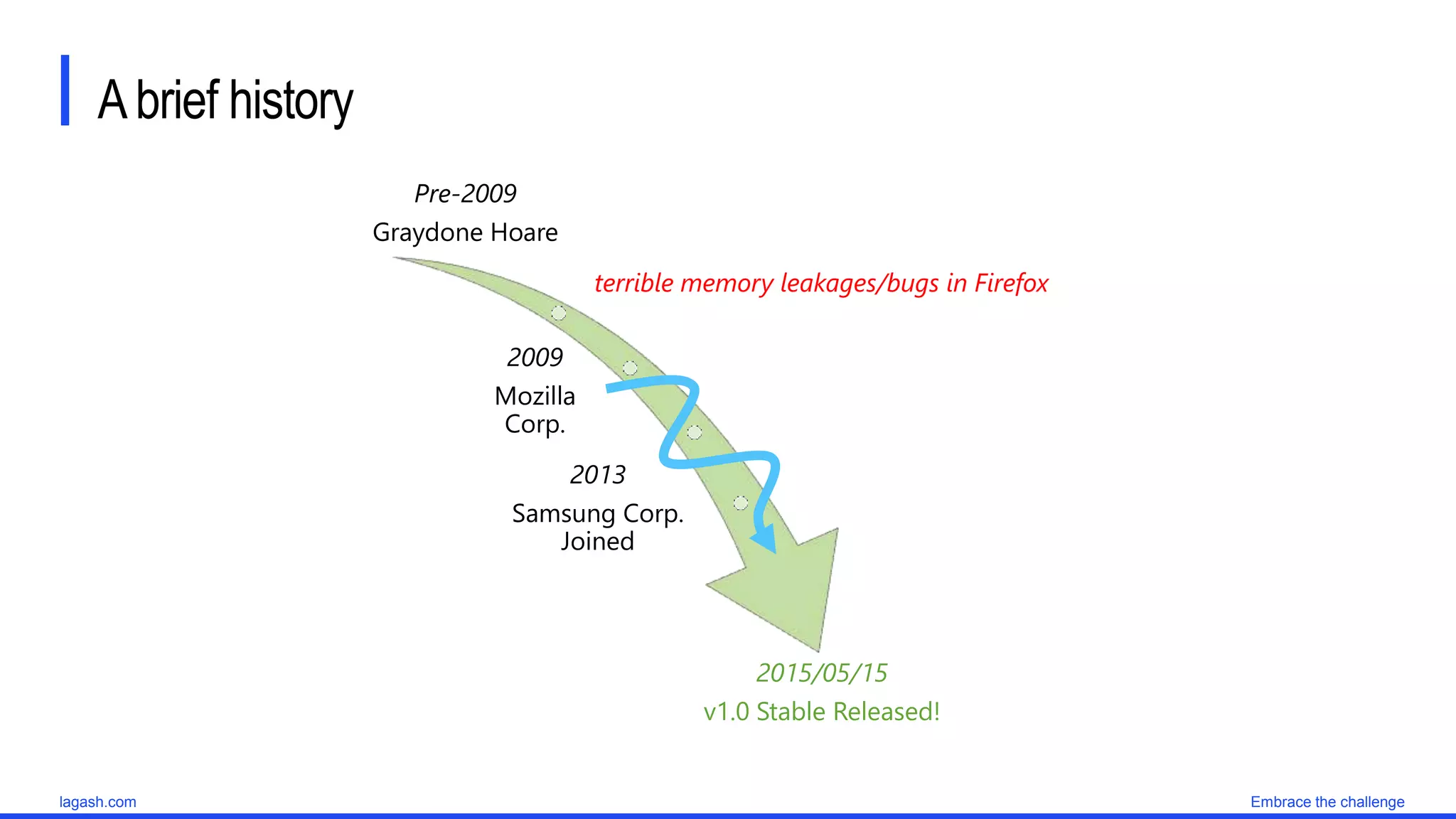
![Embrace the challengelagash.com Soft • Web browser • Firefox • Servo: Mozilla's parallel web browser engine developed in collaboration with Samsung • Quantum:a project, composed of several sub-projects, to improve the Gecko web browser engine of Firefox, developed by Mozilla • Operating system • Magic Pocket: Dropbox's file system that powers their Diskotech petabyte storage machines • Redox: a microkernel operating system • Stratis: a file system planned for Fedora 28 • Railcae: a container runtime by Oracle • Firecracker: secure and fast microVMs for serverless computing[58] • Other • exa: a "modern replacement for ls“ • Microsoft Azure IoT Edge: a platform used to run Azure services and artificial intelligence on IoT devices has components implemented in Rust • OpenDNS:used in two of its components[60][61][62] • Tor: an anonymity network, written in C originally, is experimenting with porting to Rust for its security features. • Wargroove: a video game developed by Chucklefish that uses Rust for its server software • Xi: a text editor from Raph Levien,[66] used within the Fuchsia operating system.[67]](https://image.slidesharecdn.com/rustv1-190407014935/75/Introduction-to-Rust-language-programming-8-2048.jpg)

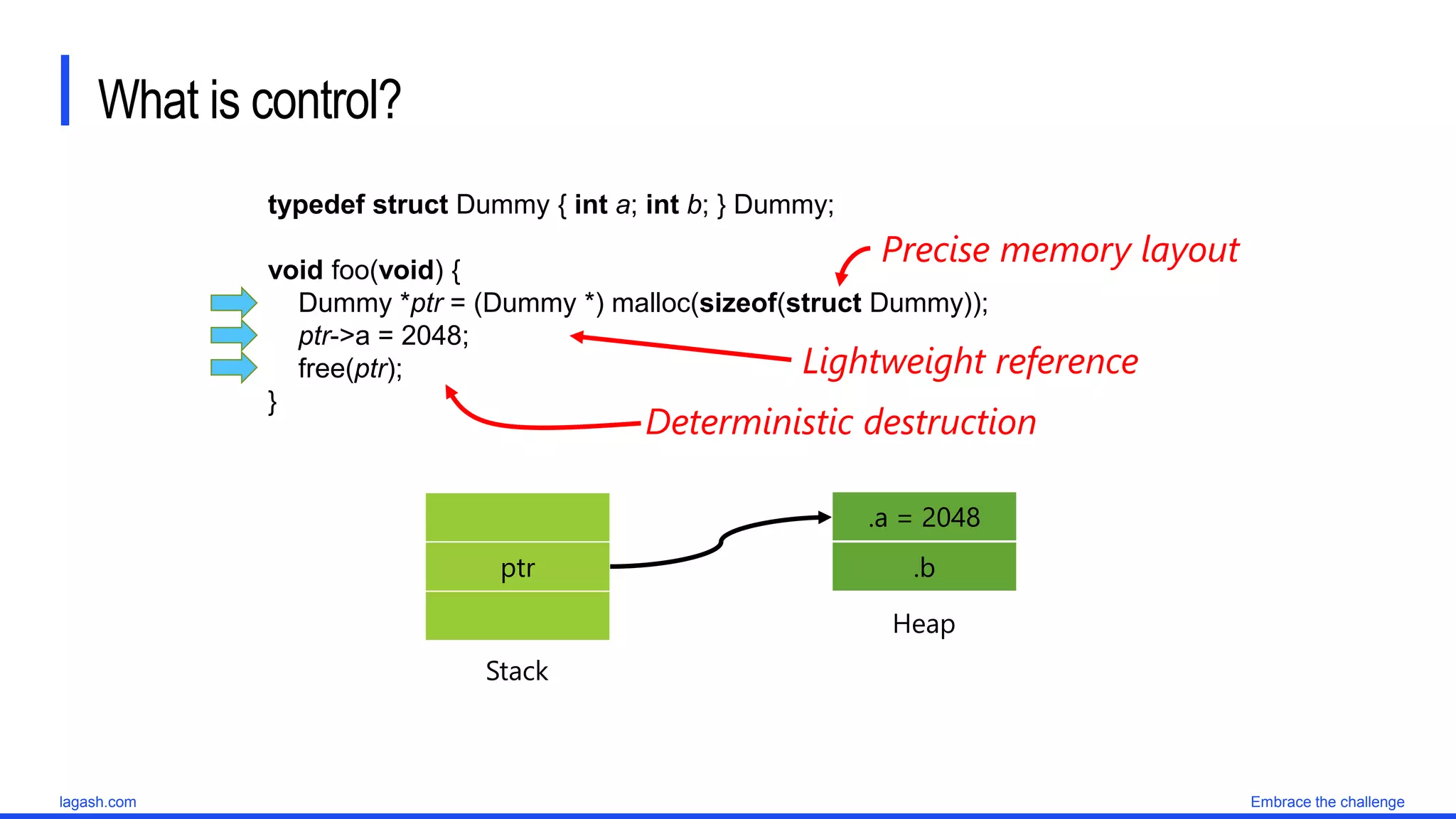

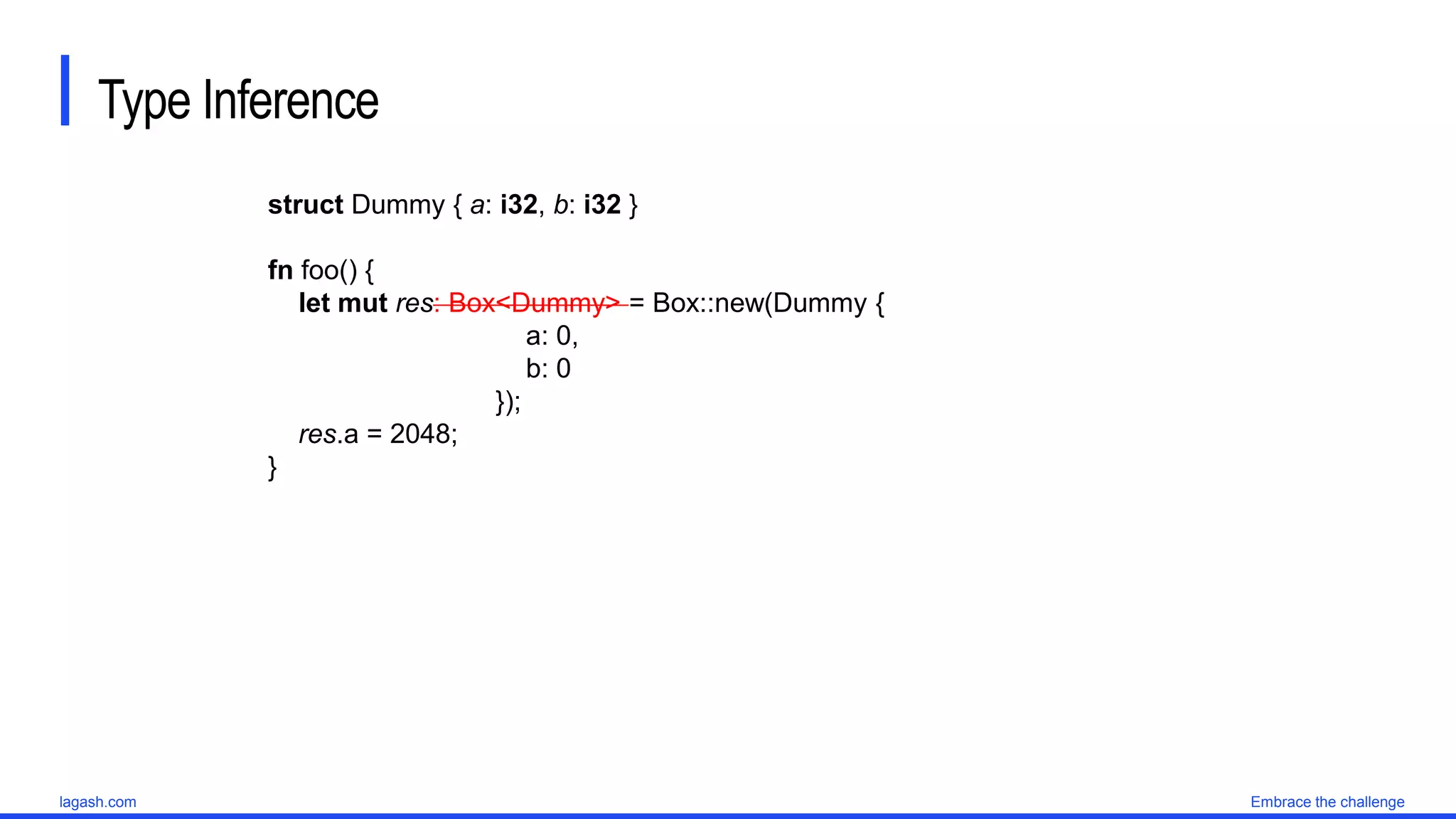
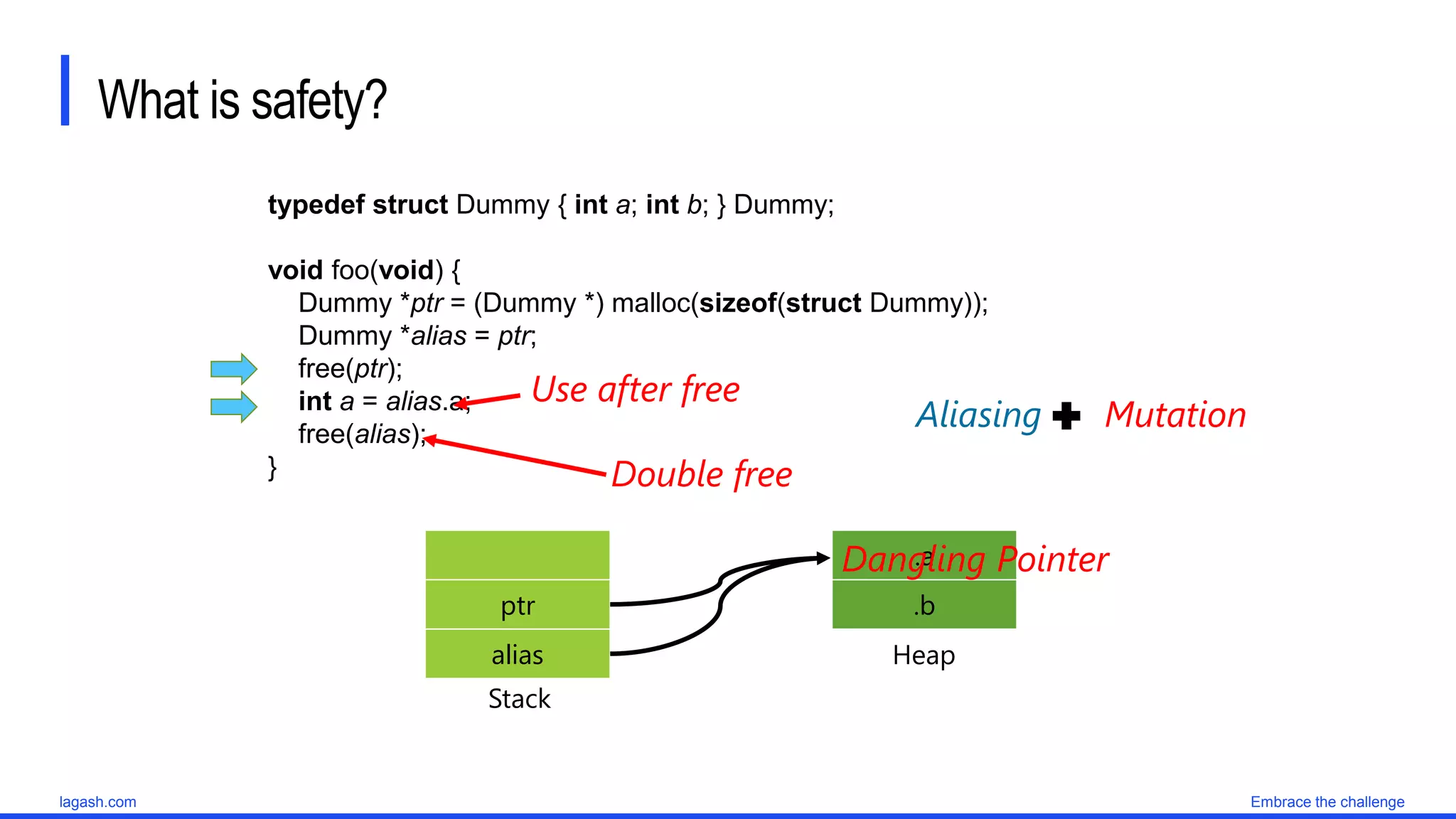
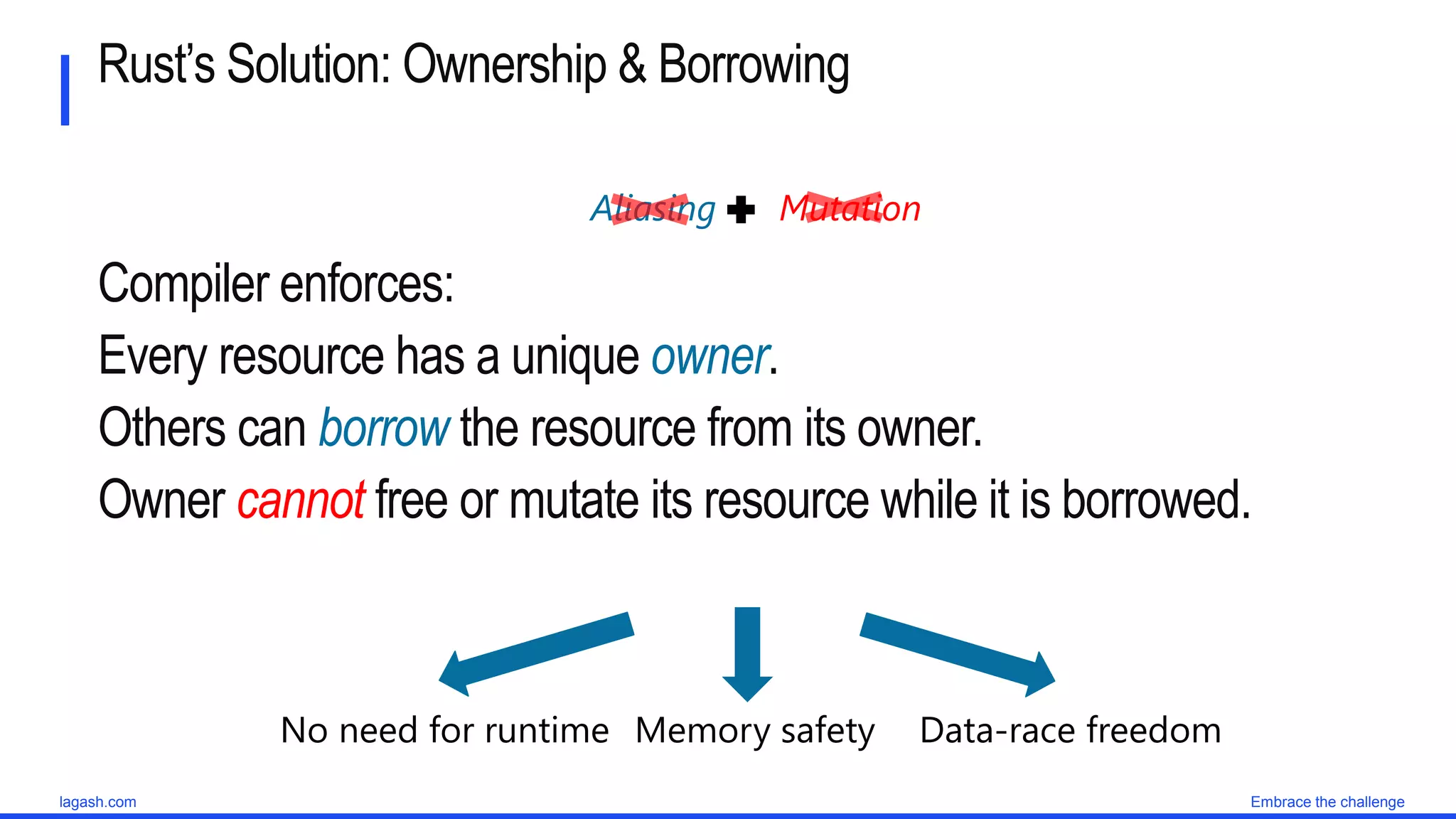

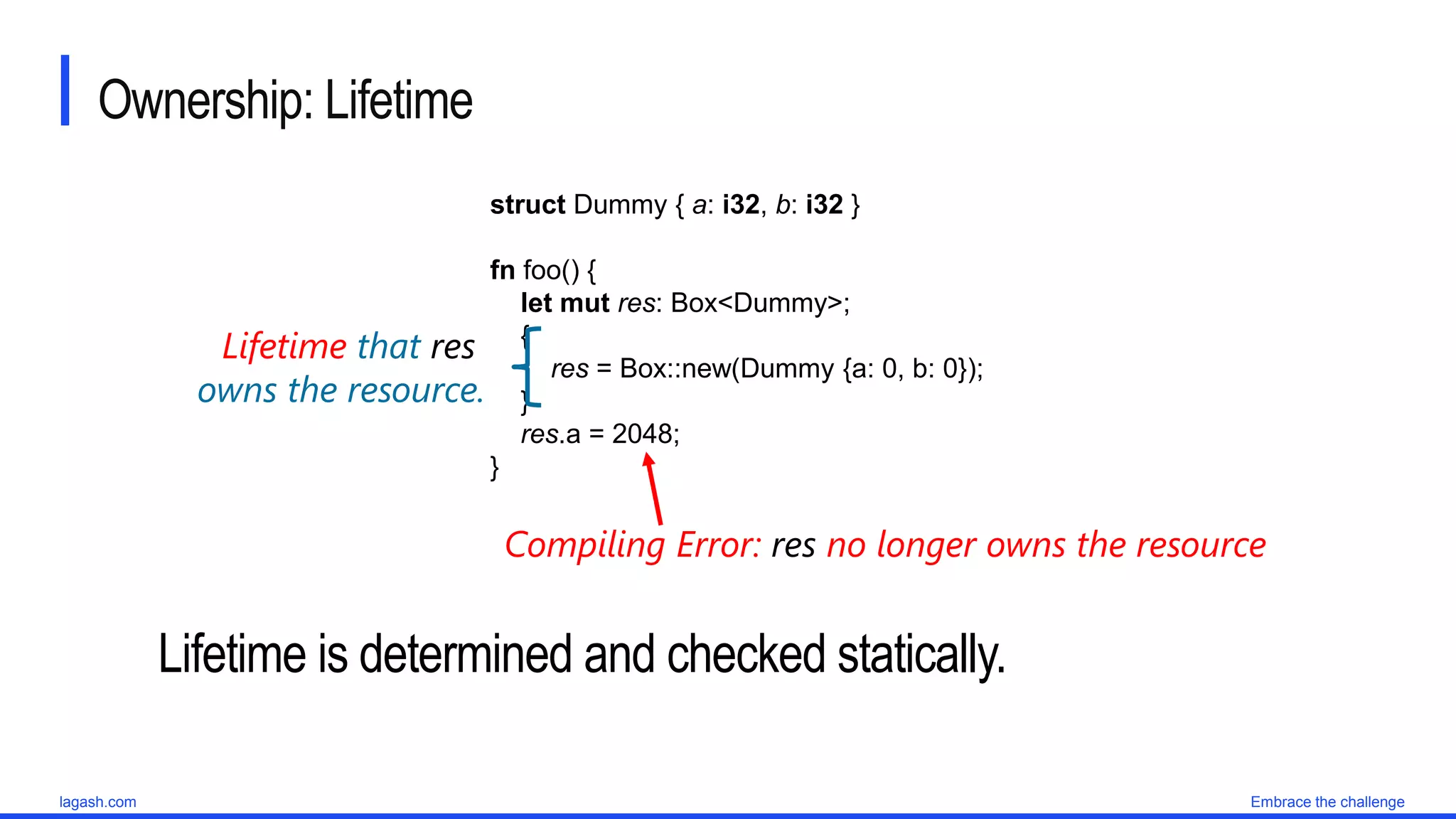


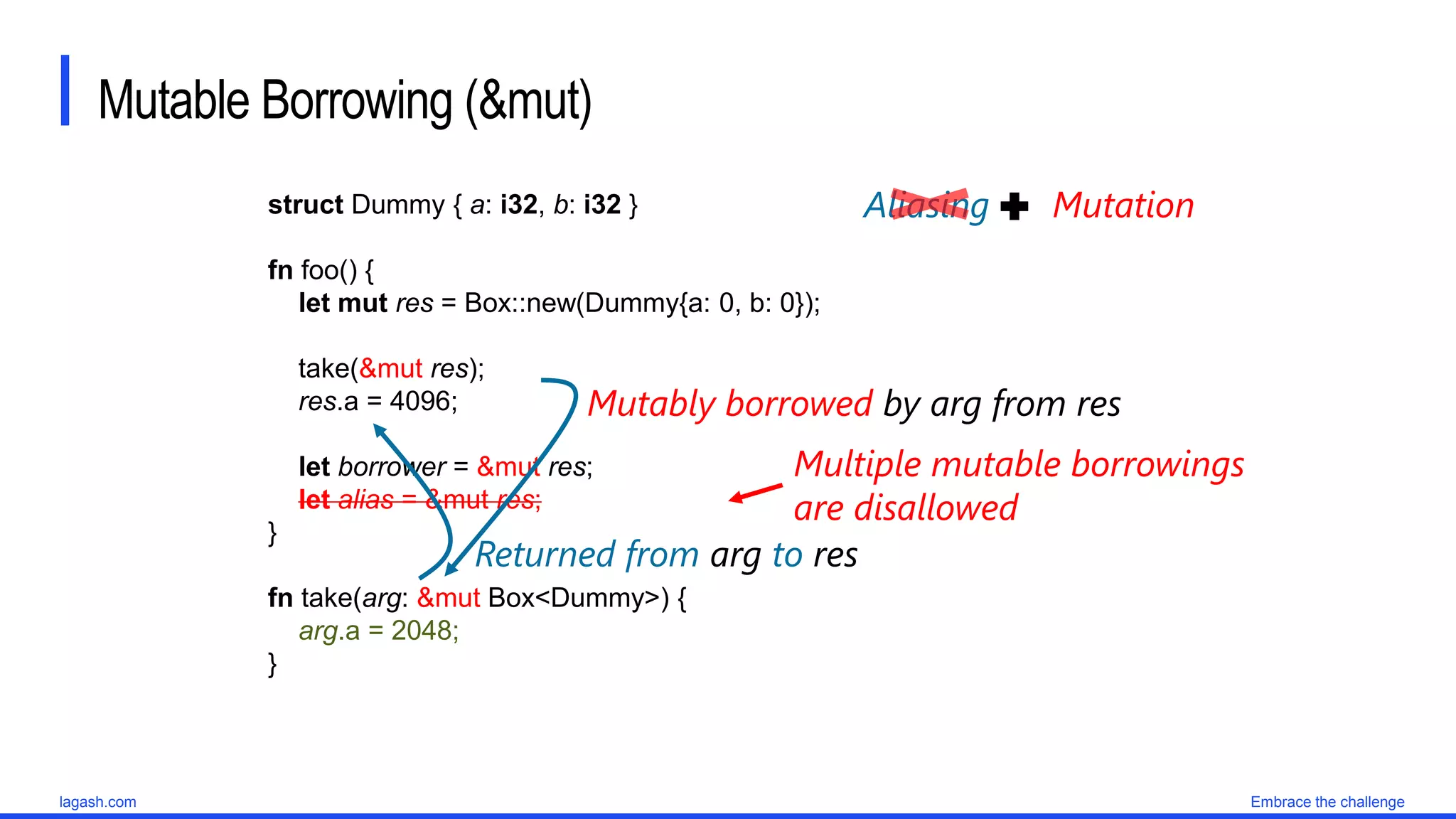
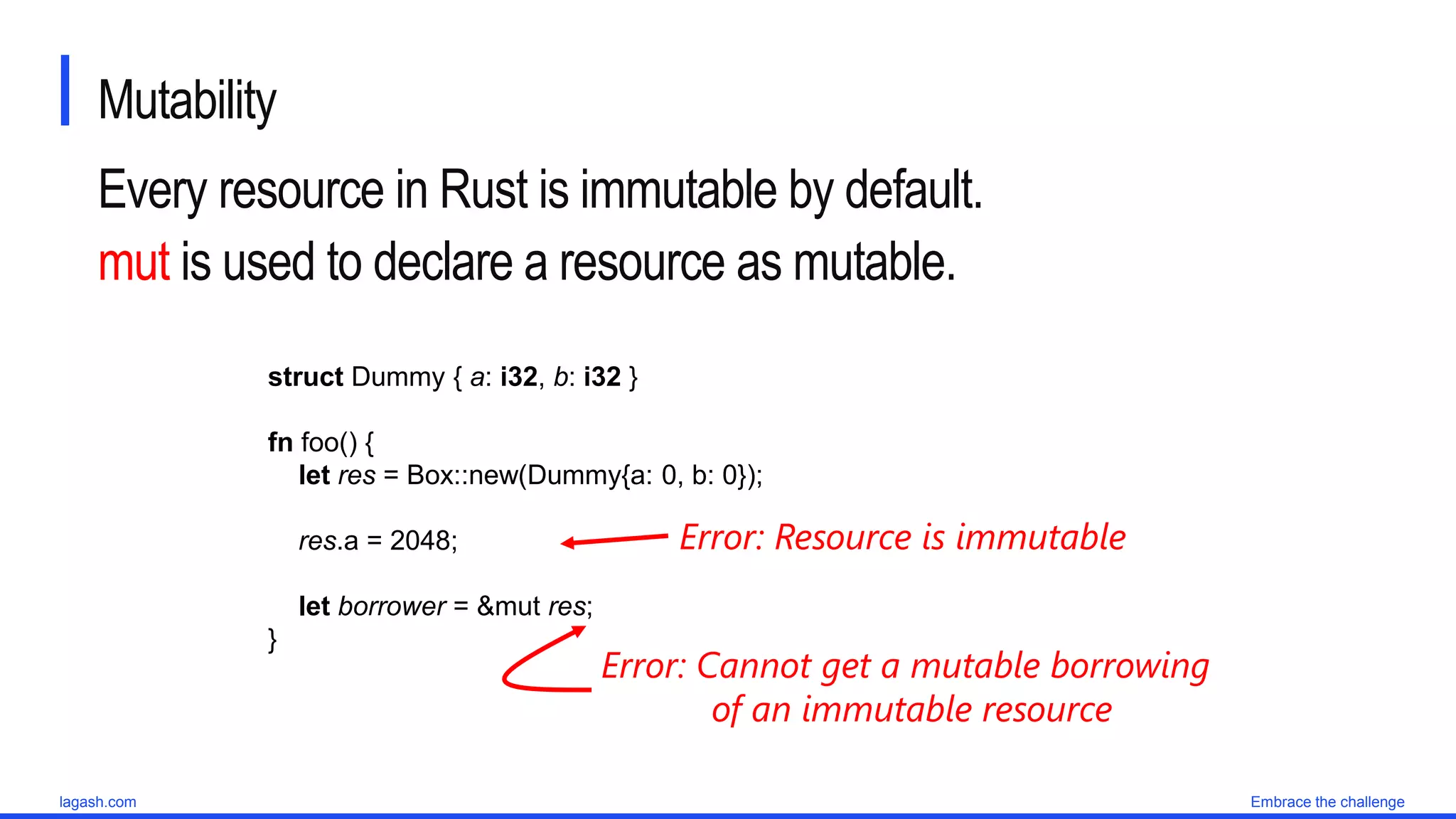
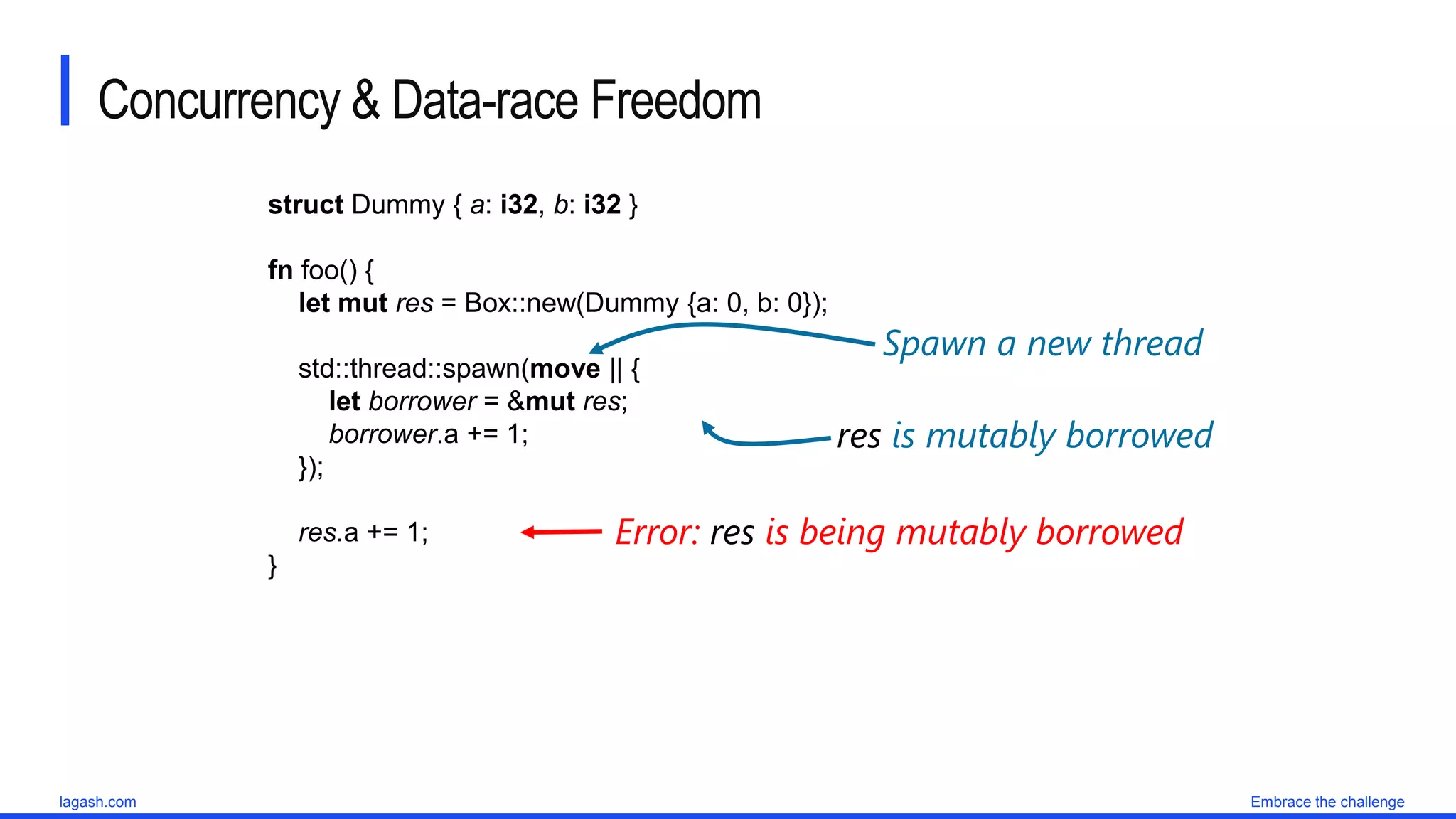

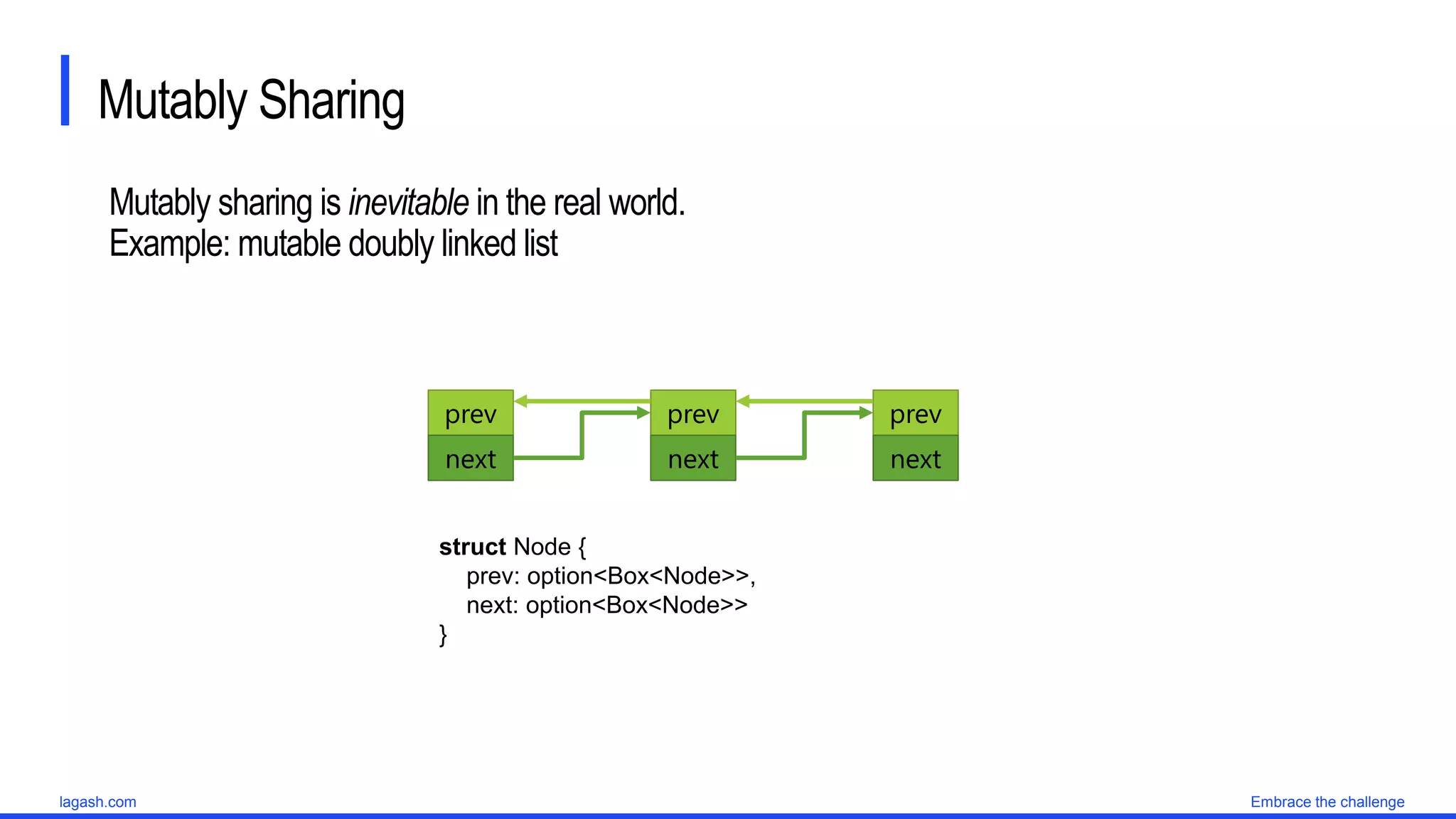
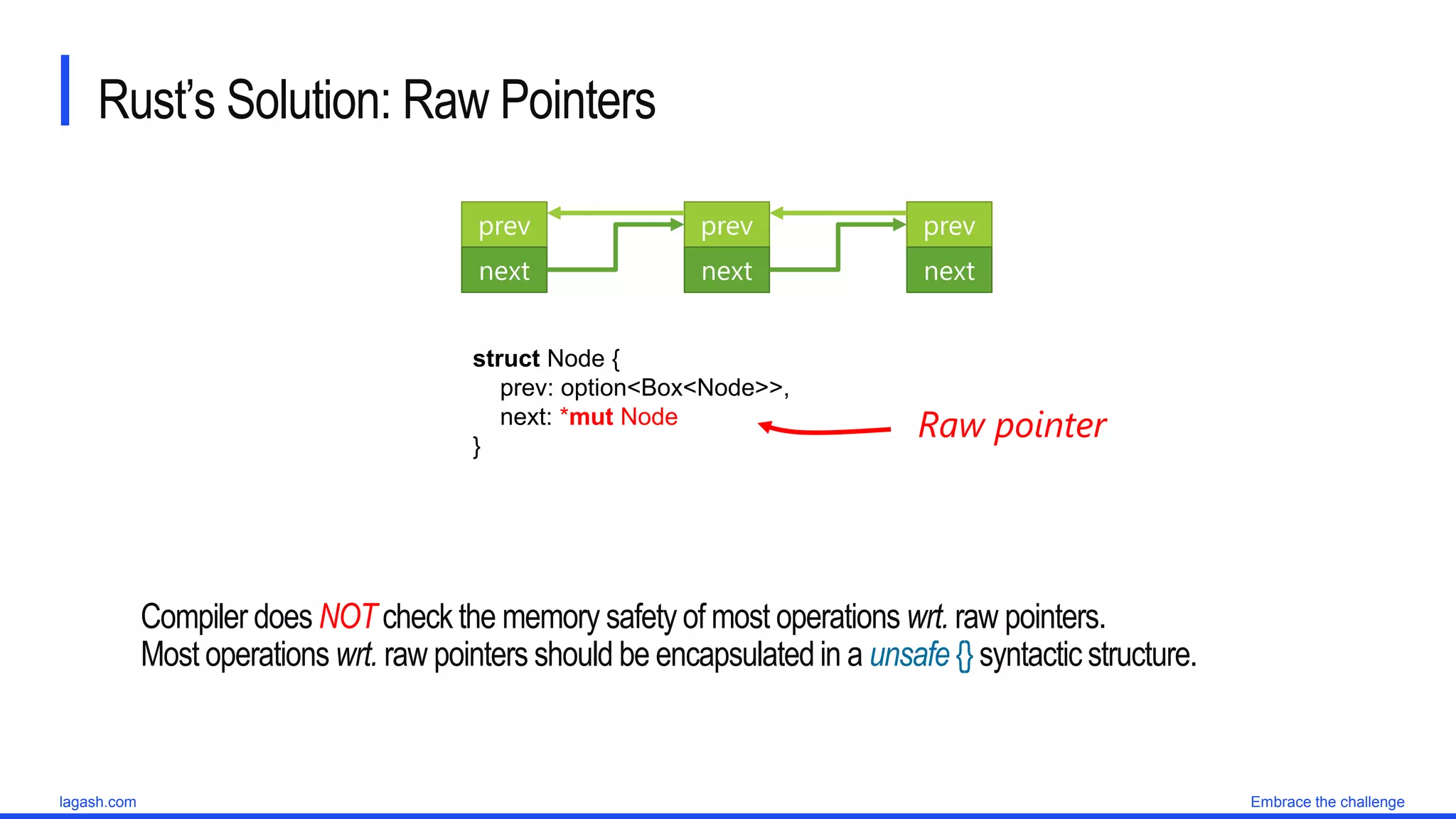
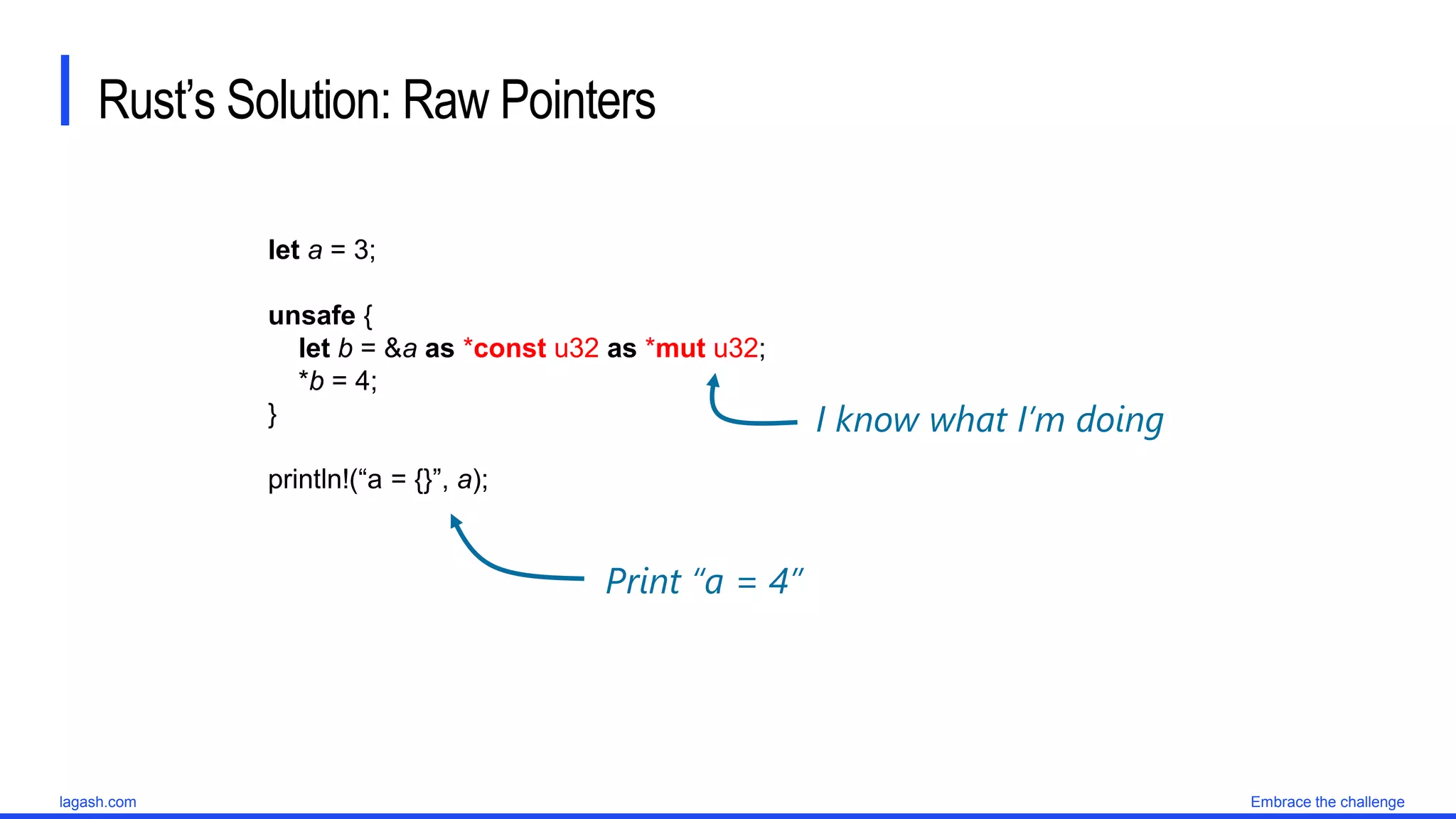
![Embrace the challengelagash.com All foreign functions are unsafe. extern { fn write(fd: i32, data: *const u8, len: u32) -> i32; } fn main() { let msg = b”Hello, world!n”; unsafe { write(1, &msg[0], msg.len()); } } Foreign Function Interface (FFI)](https://image.slidesharecdn.com/rustv1-190407014935/75/Introduction-to-Rust-language-programming-26-2048.jpg)
![Embrace the challengelagash.com InlineAssembly #![feature(asm)] fn outl(port: u16, data: u32) { unsafe { asm!(“outl %0, %1” : : “a” (data), “d” (port) : : “volatile”); } }](https://image.slidesharecdn.com/rustv1-190407014935/75/Introduction-to-Rust-language-programming-27-2048.jpg)

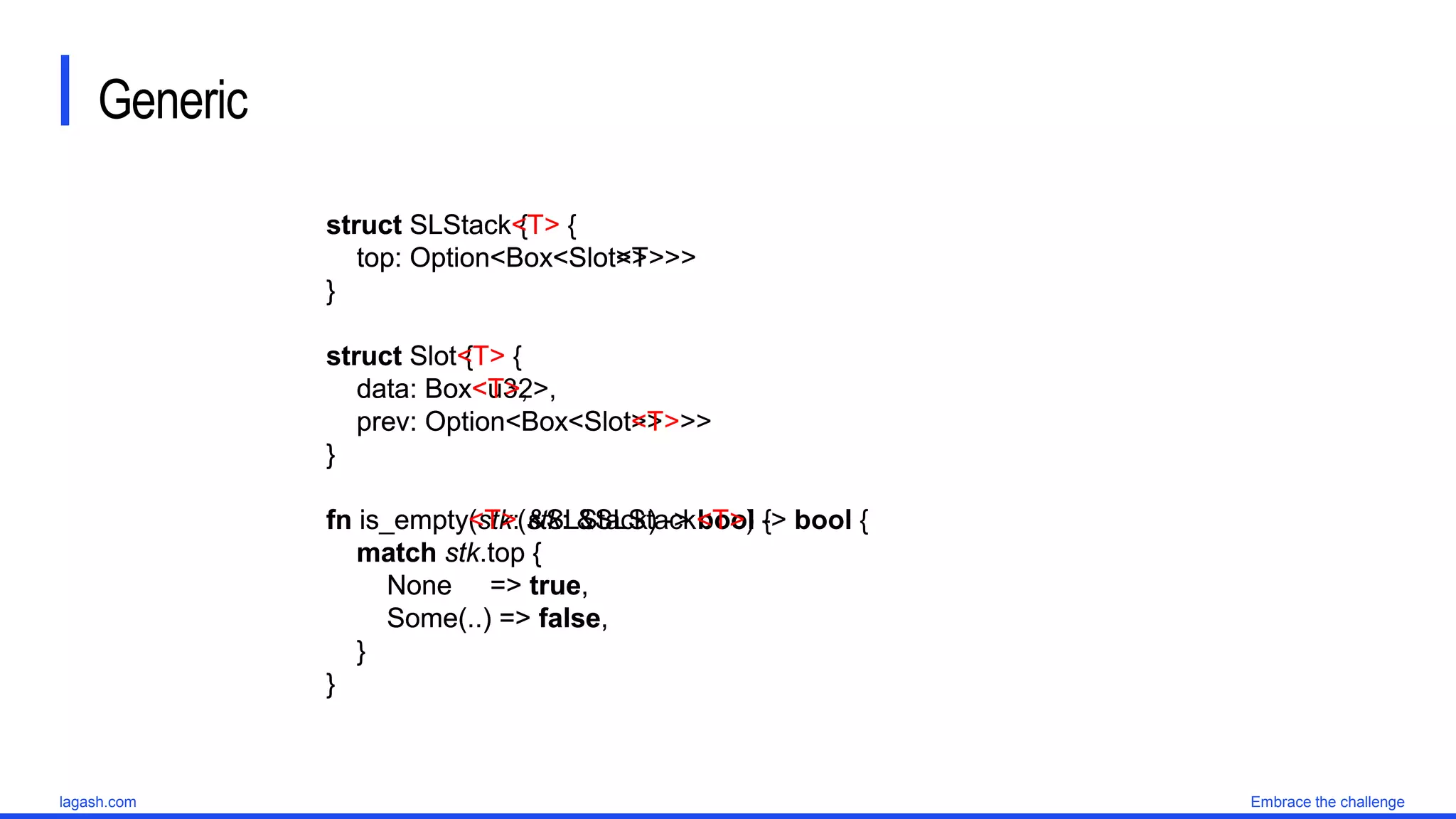

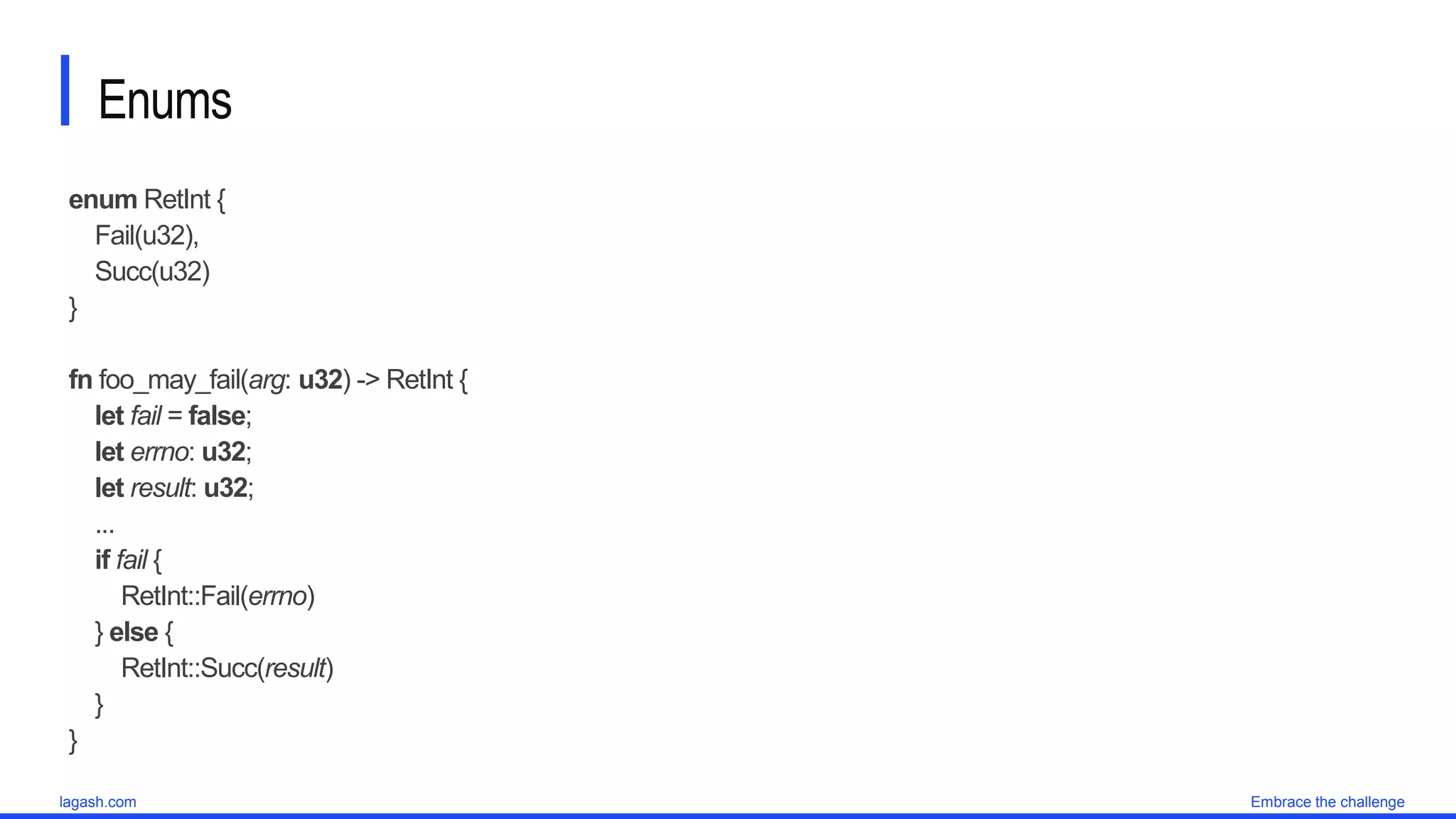
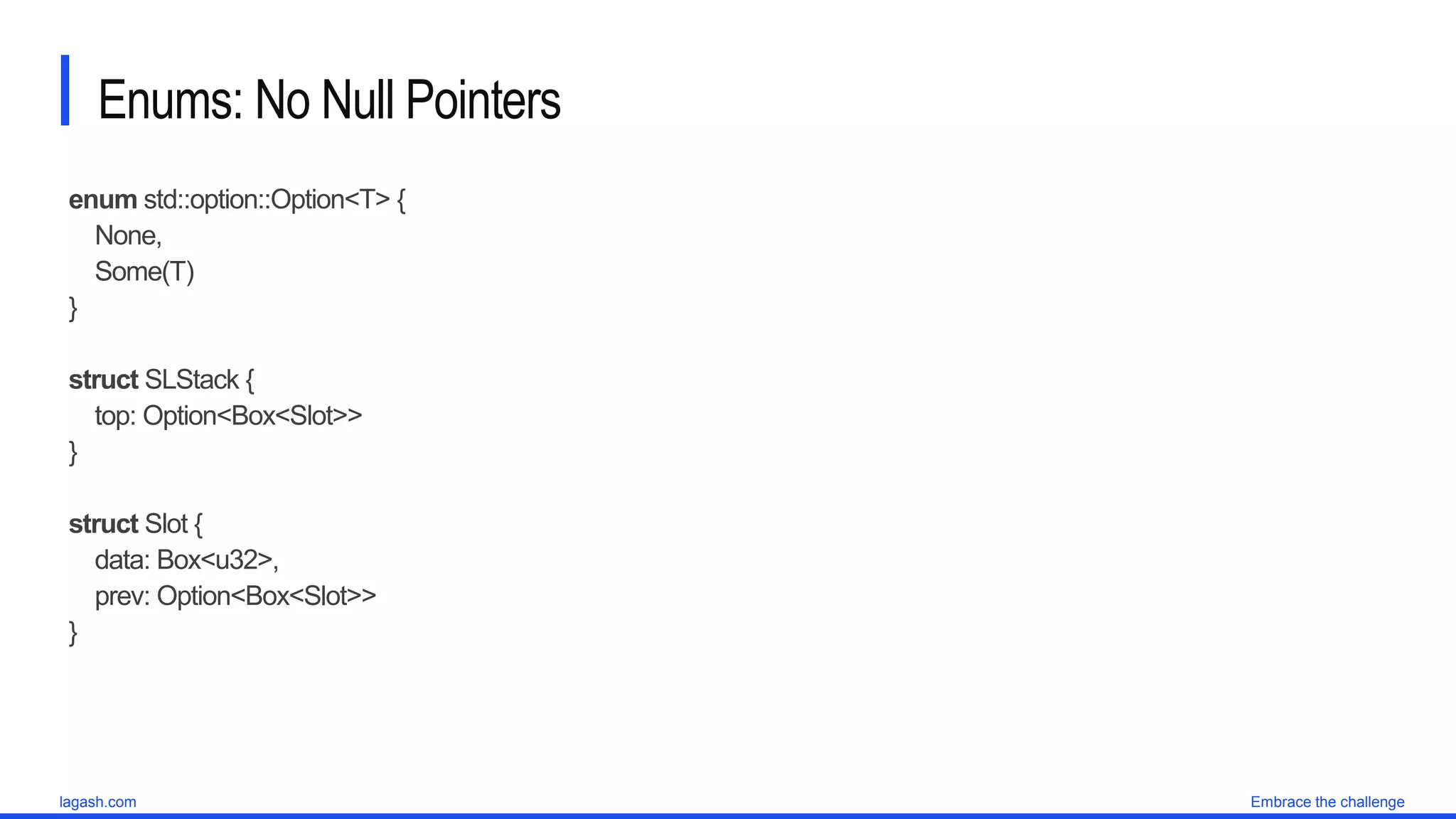
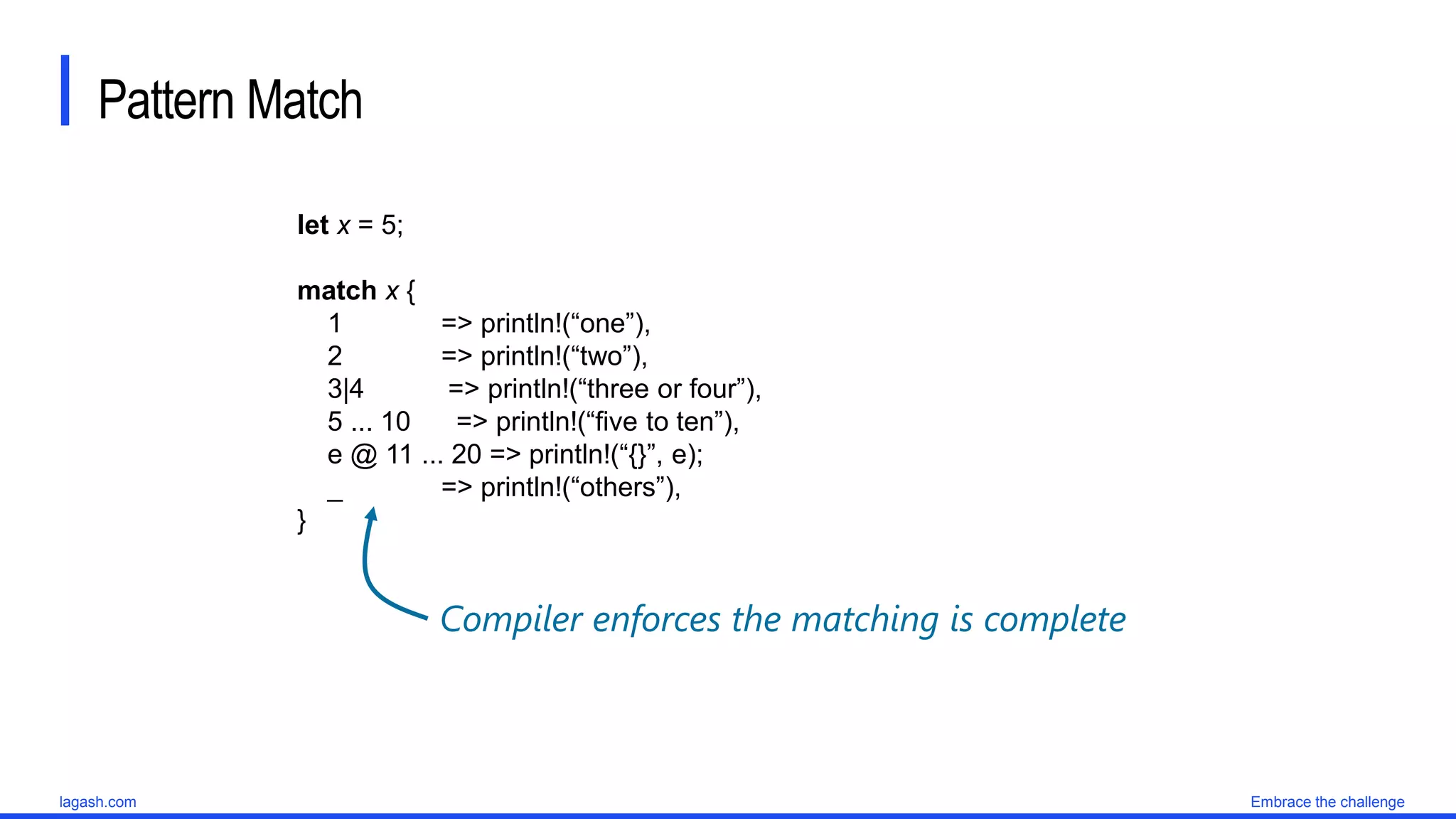
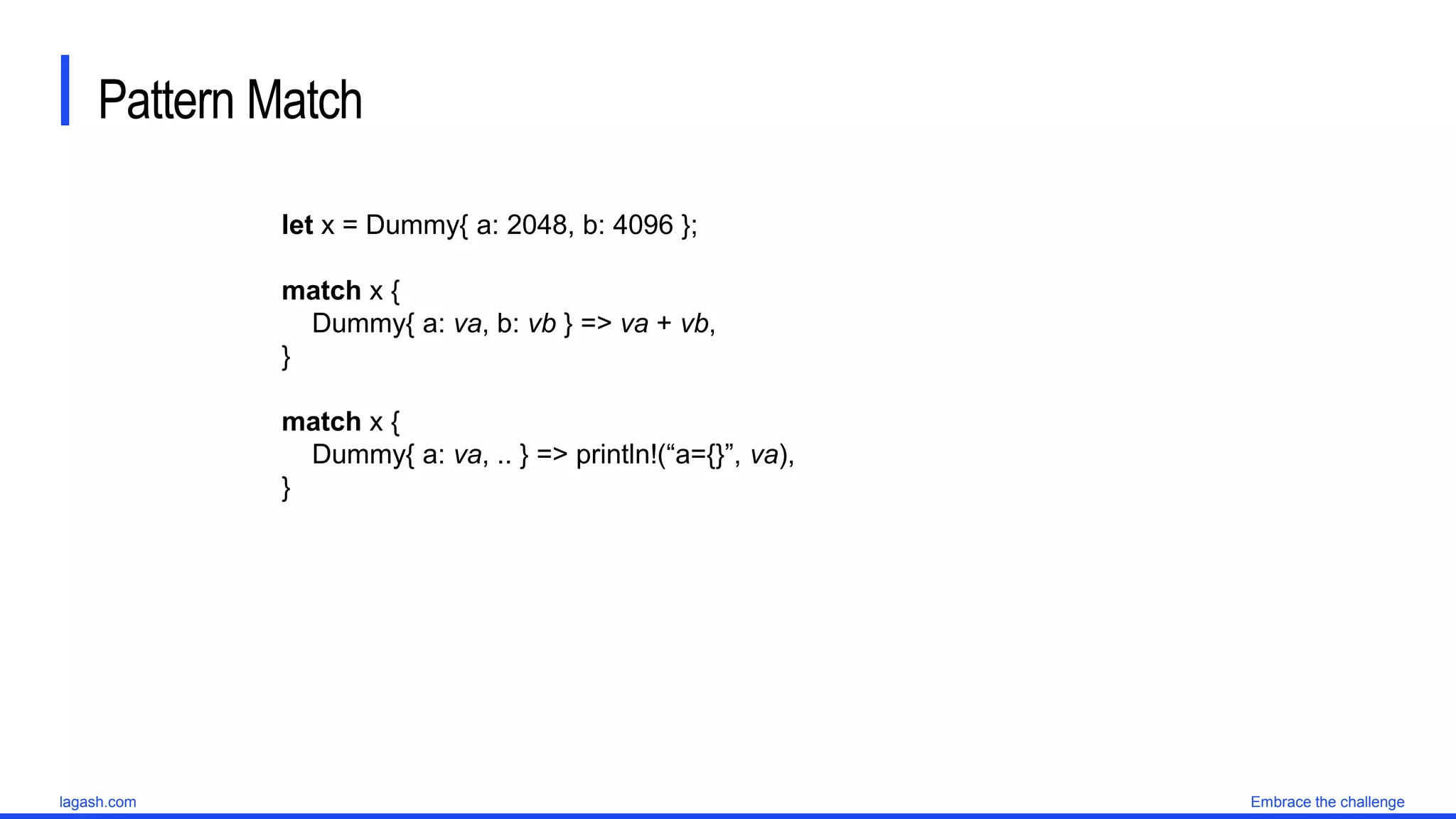
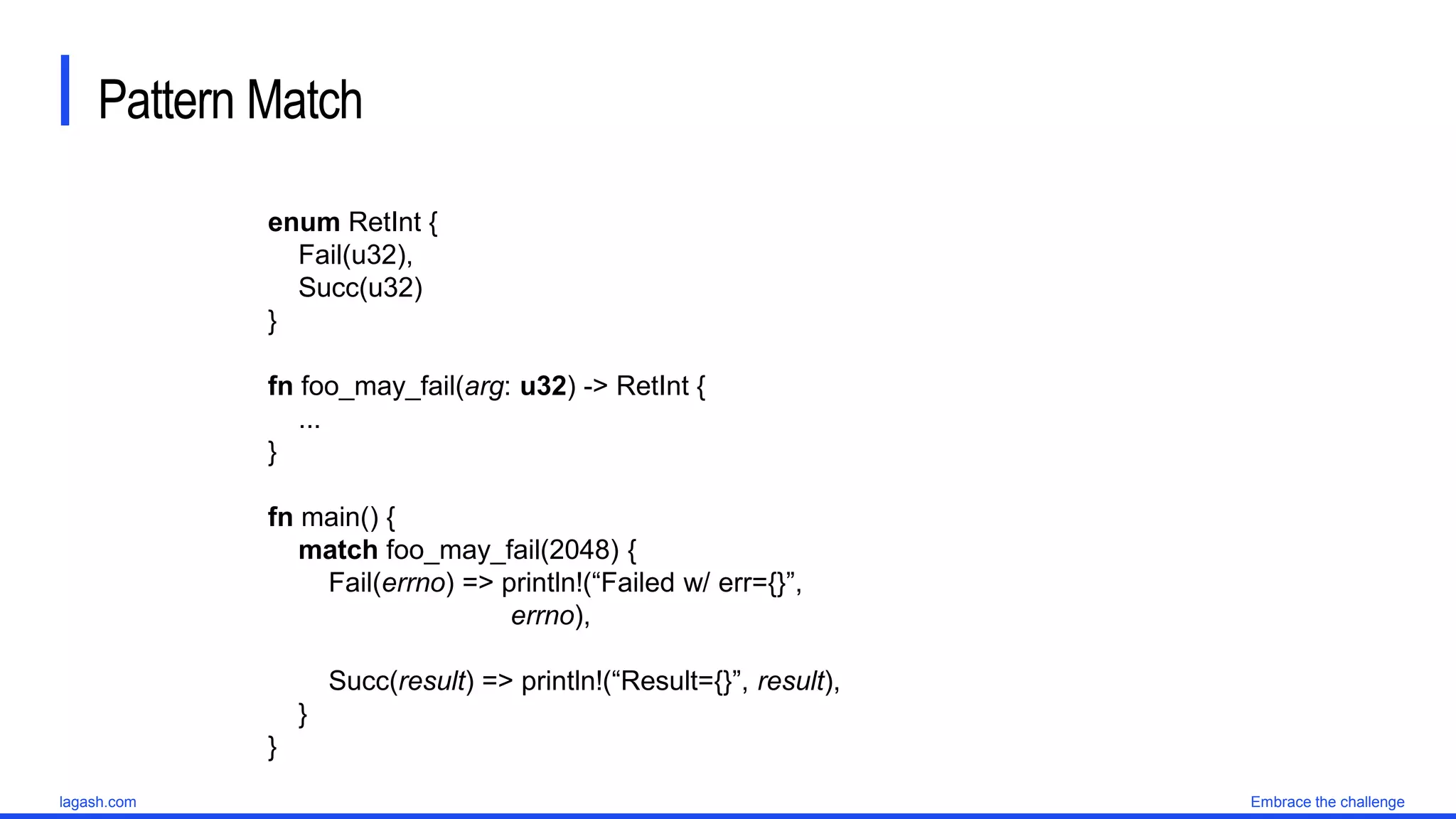
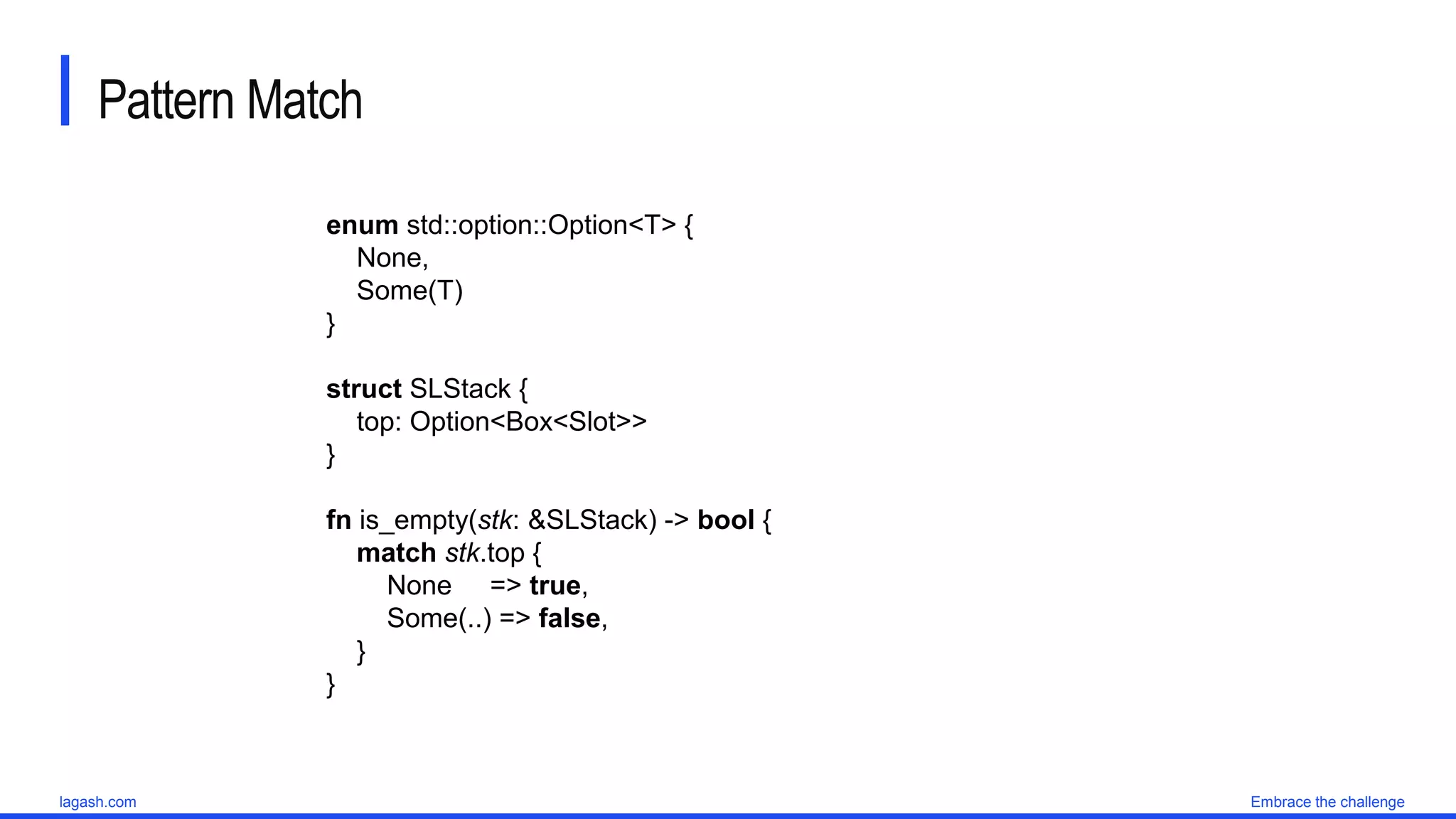
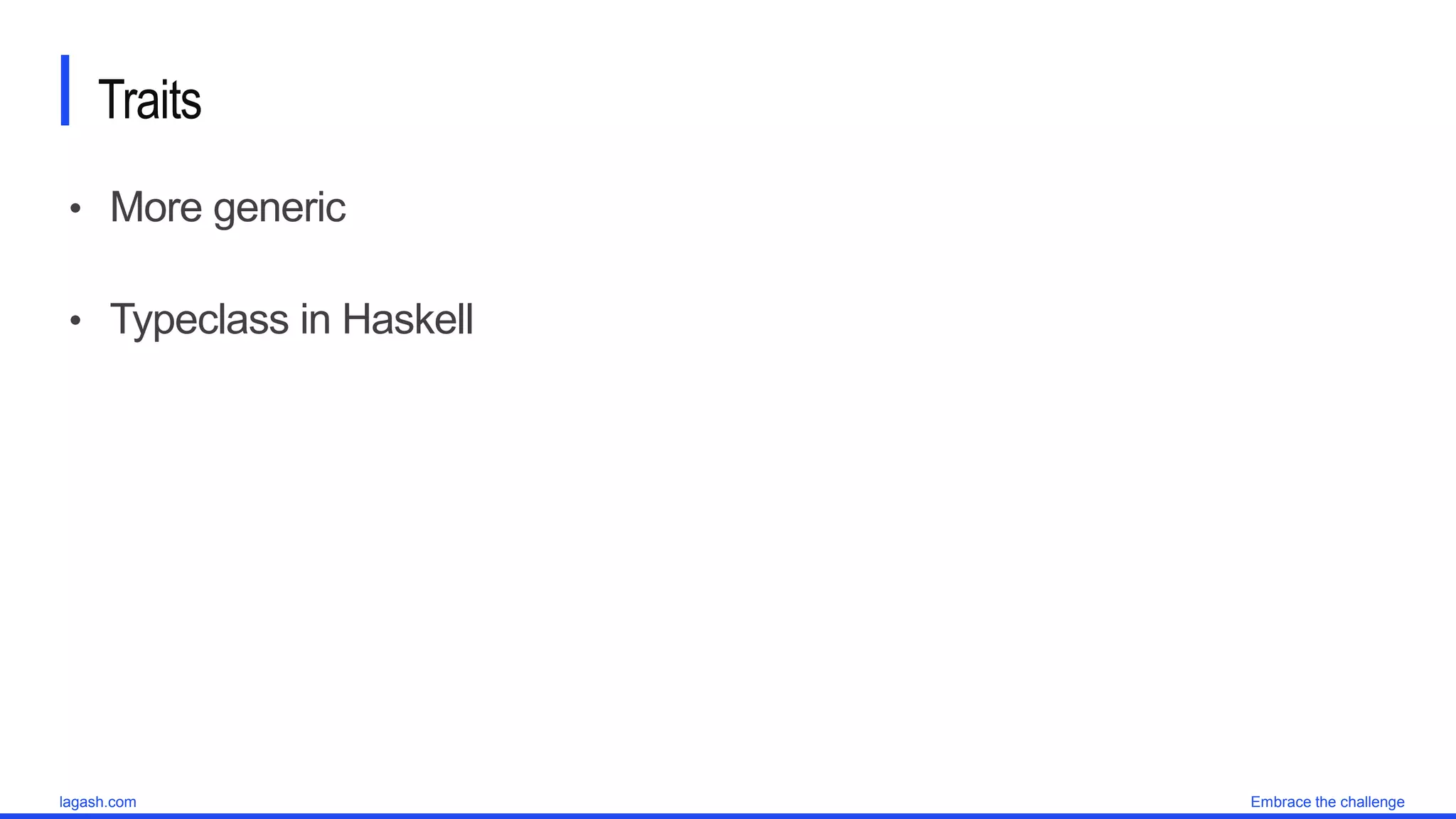

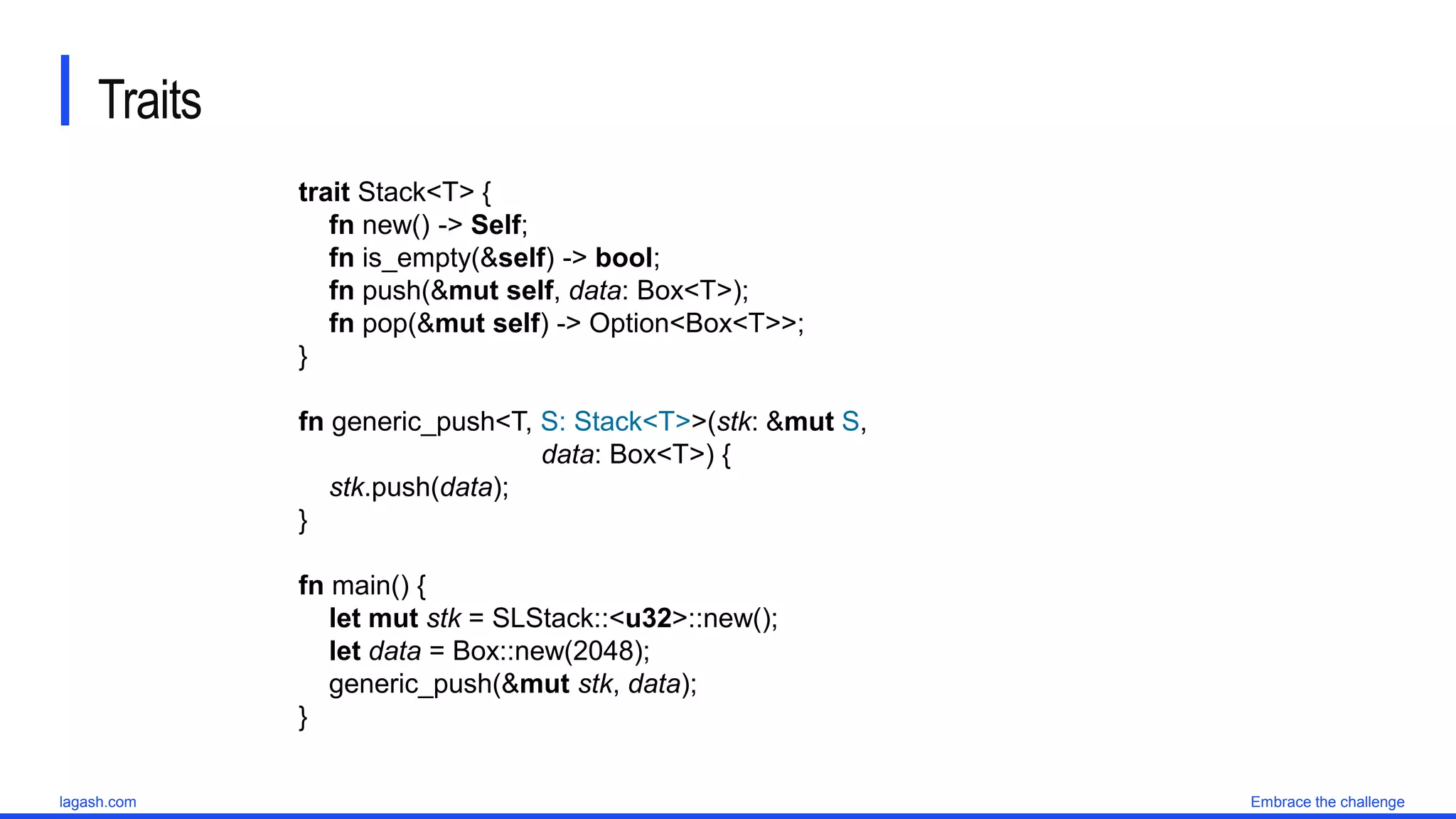

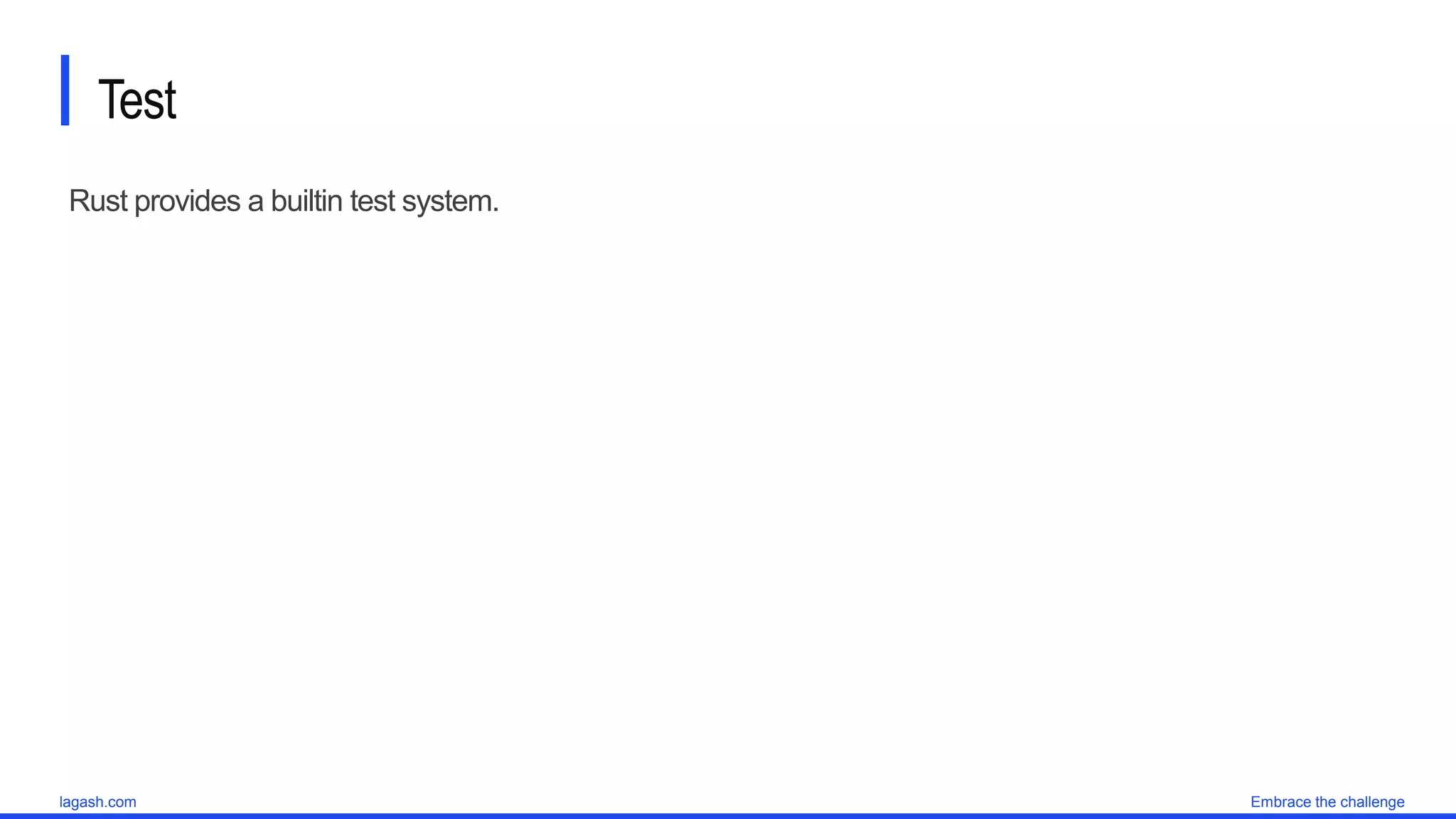
![Embrace the challengelagash.com Tests #[test] fn test_pop_empty_stack() { let stk = SLStack::<u32>::new(); assert!(stk.pop() == None); } Testing annotation $ rustc --test slstack.rs; ./slstack running 1 test test test_pop_empty_stack … ok test result: ok. 1 passed; 0 failed; 0 ignored; 0 measured Passed](https://image.slidesharecdn.com/rustv1-190407014935/75/Introduction-to-Rust-language-programming-42-2048.jpg)
![Embrace the challengelagash.com Tests #[test] fn test_pop_empty_stack() { let stk = SLStack::<u32>::new(); assert!(stk.pop() == None); } Testing annotation $ rustc --test slstack.rs; ./slstack running 1 test test test_pop_empty_stack … FAILED --- test_pop_empty_stack stdout --- thread ‘test_pop_empty_stack’ panicked at ‘assertion failed: stk.pop() == None’, slstack.rs: 4 failures: test_pop_empty_stack test result: FAILED. 0 passed; 1 failed; 0 ignored; 0 measured Failed](https://image.slidesharecdn.com/rustv1-190407014935/75/Introduction-to-Rust-language-programming-43-2048.jpg)
